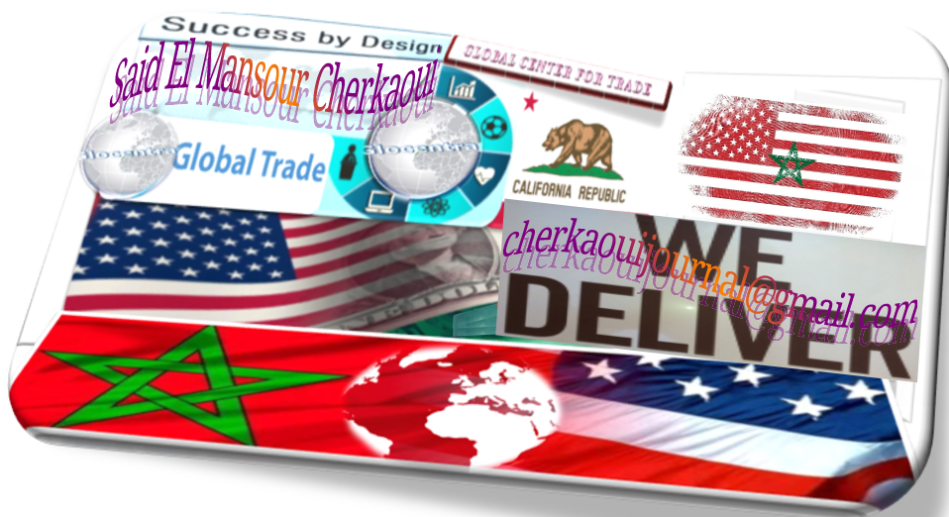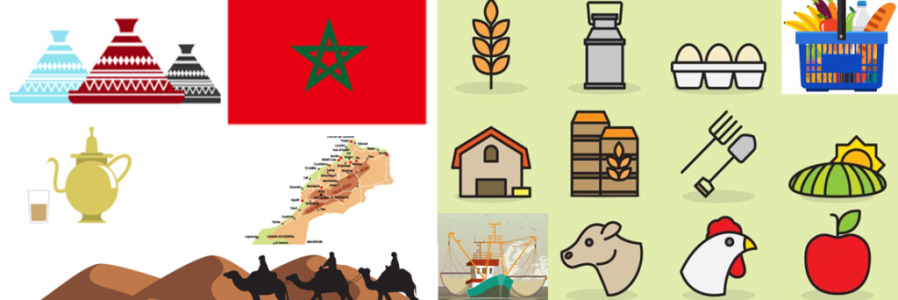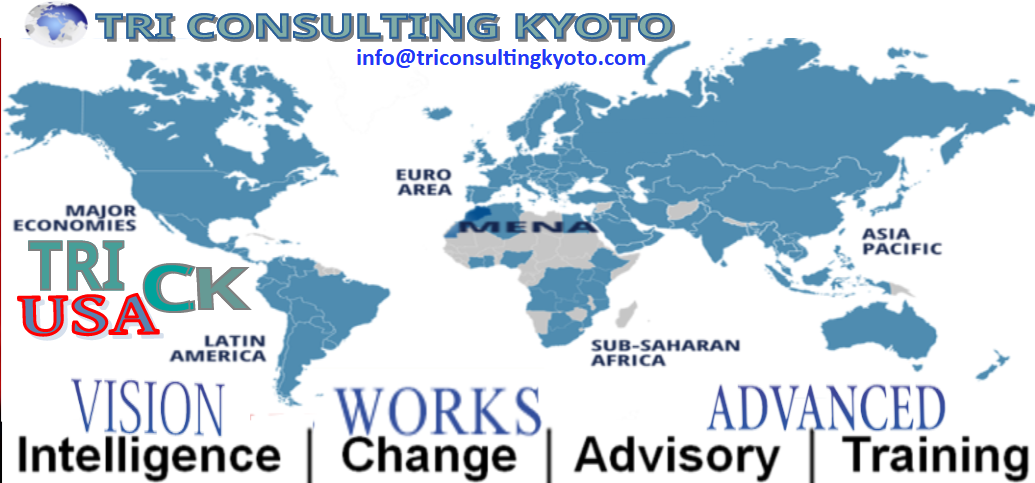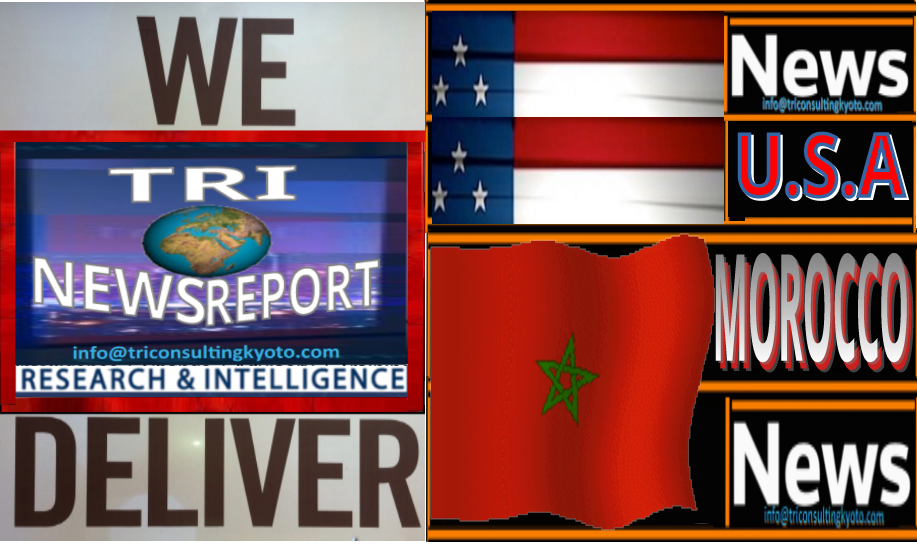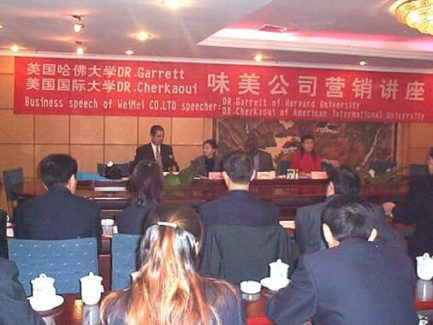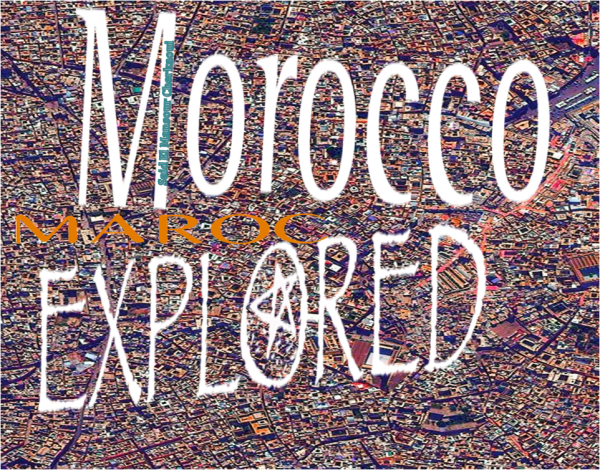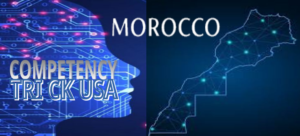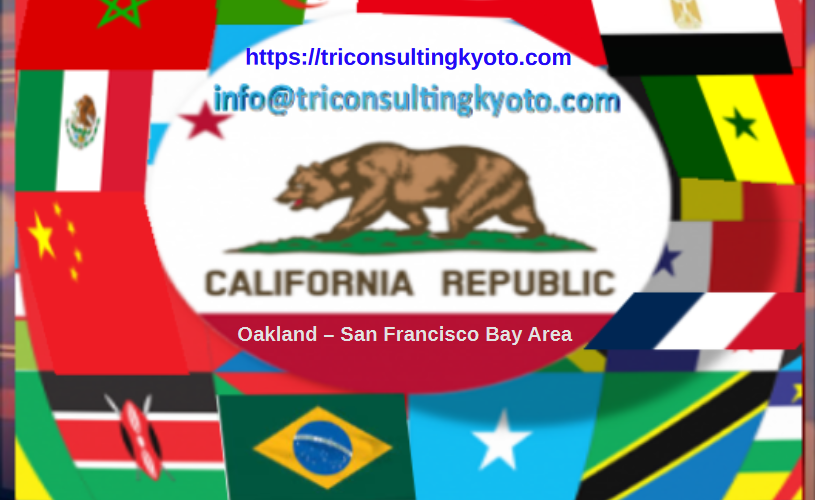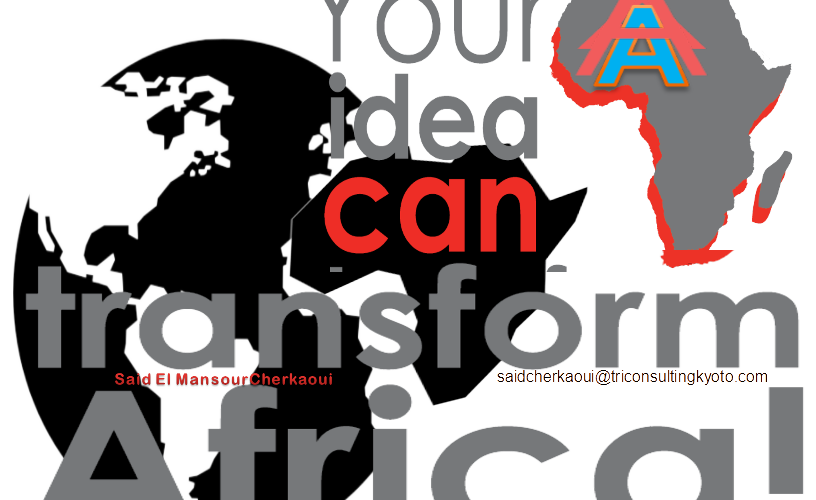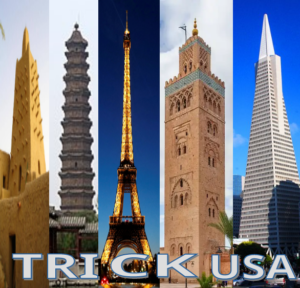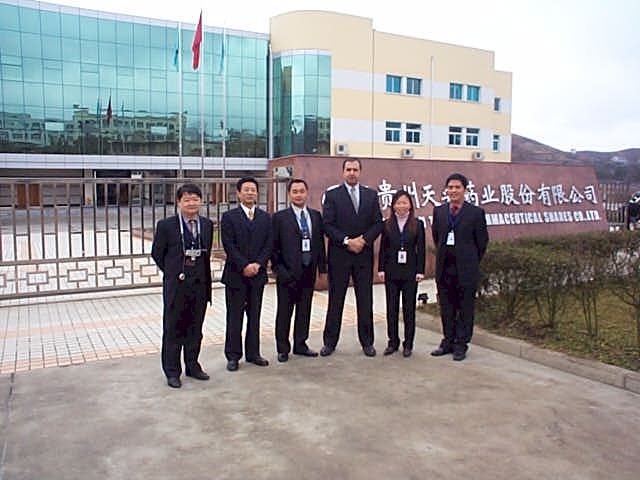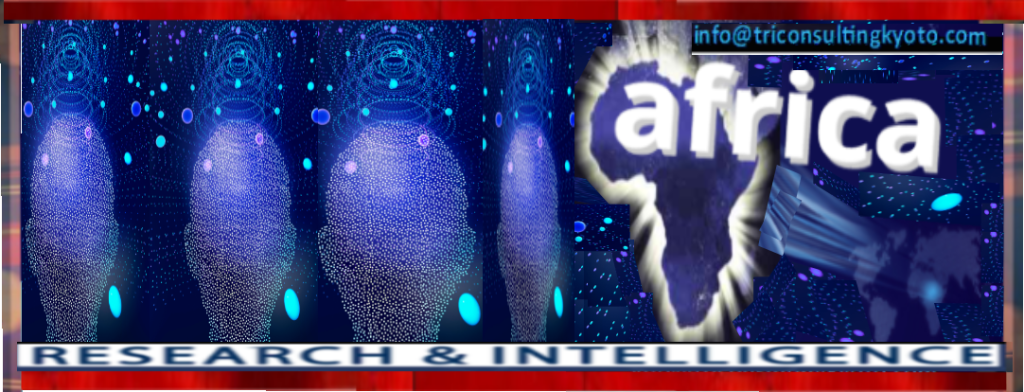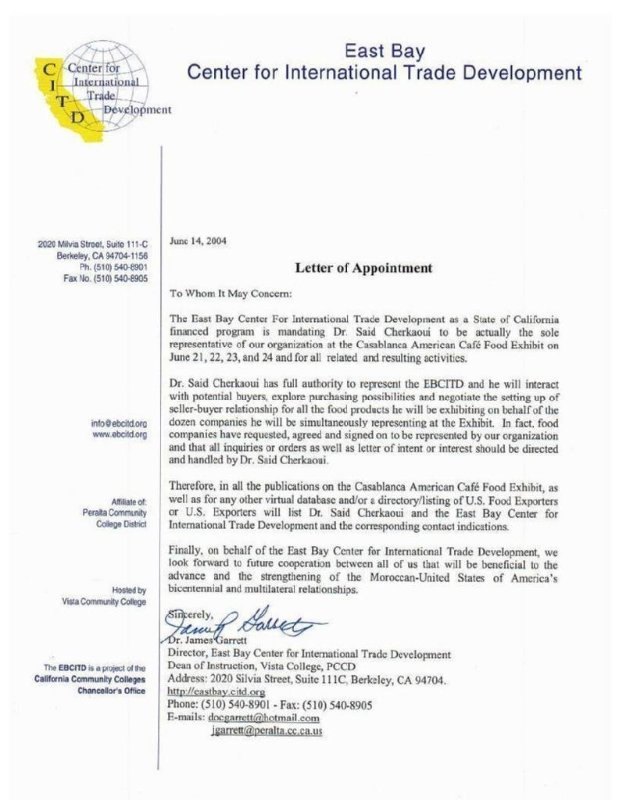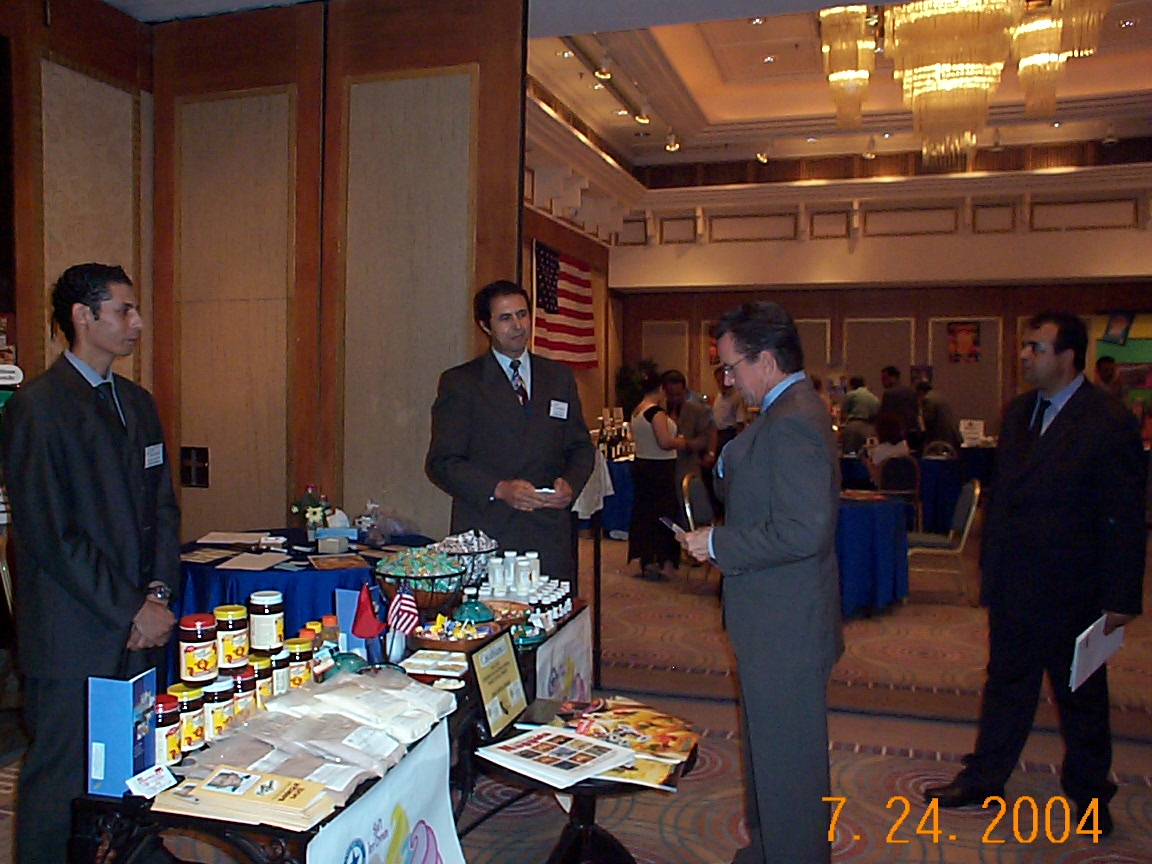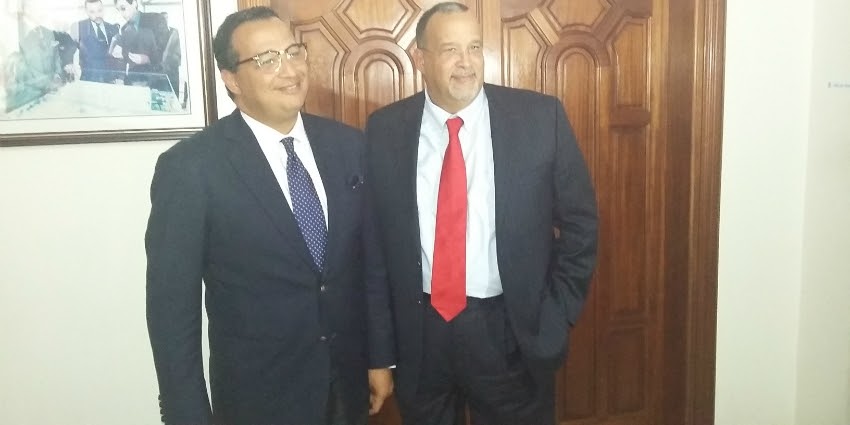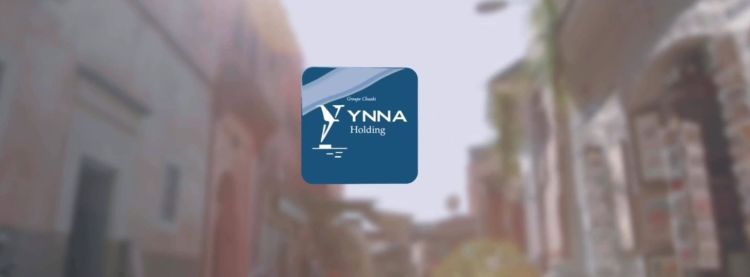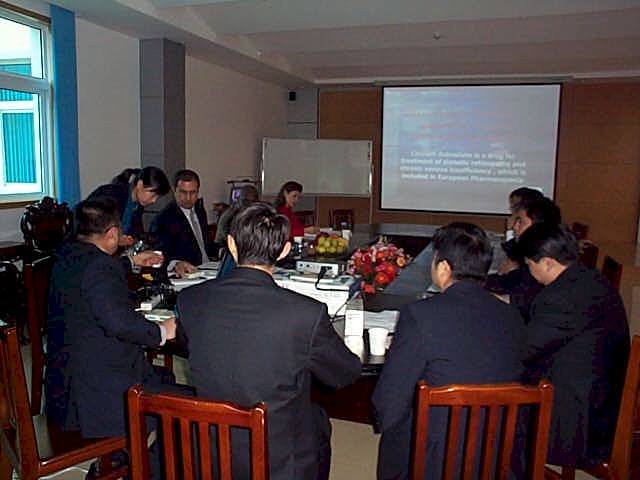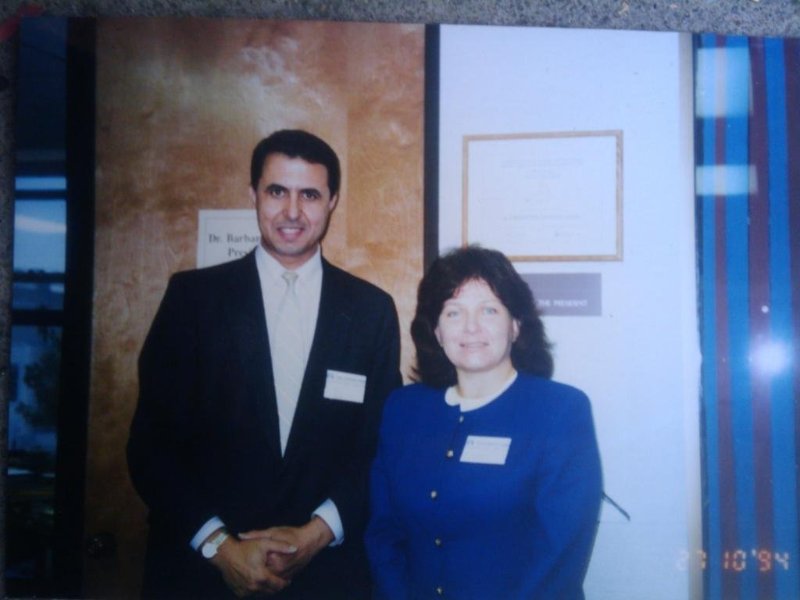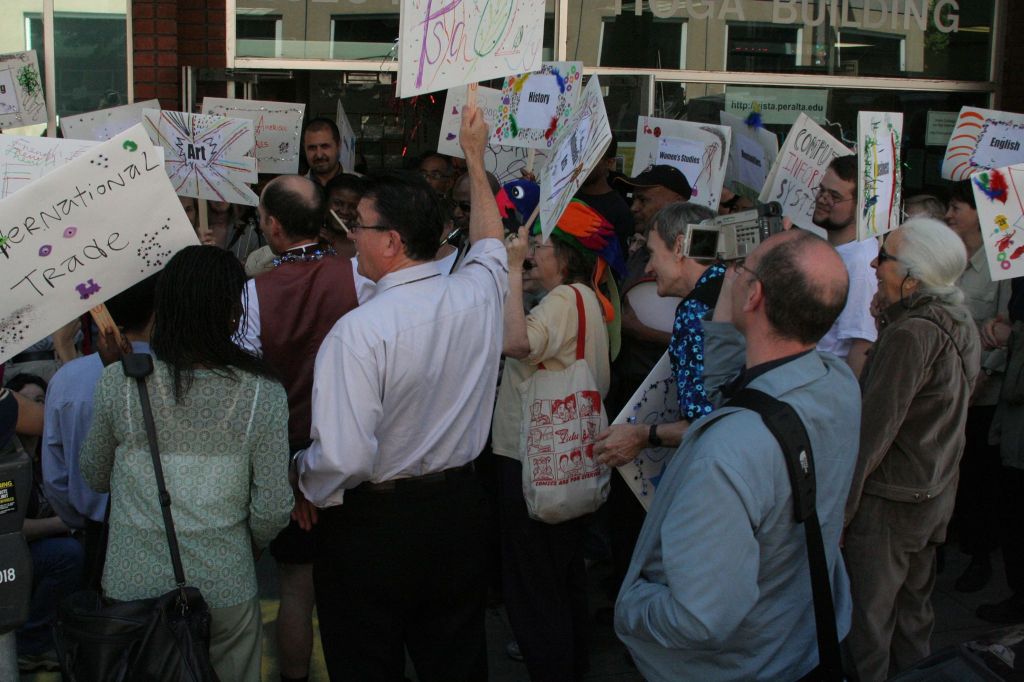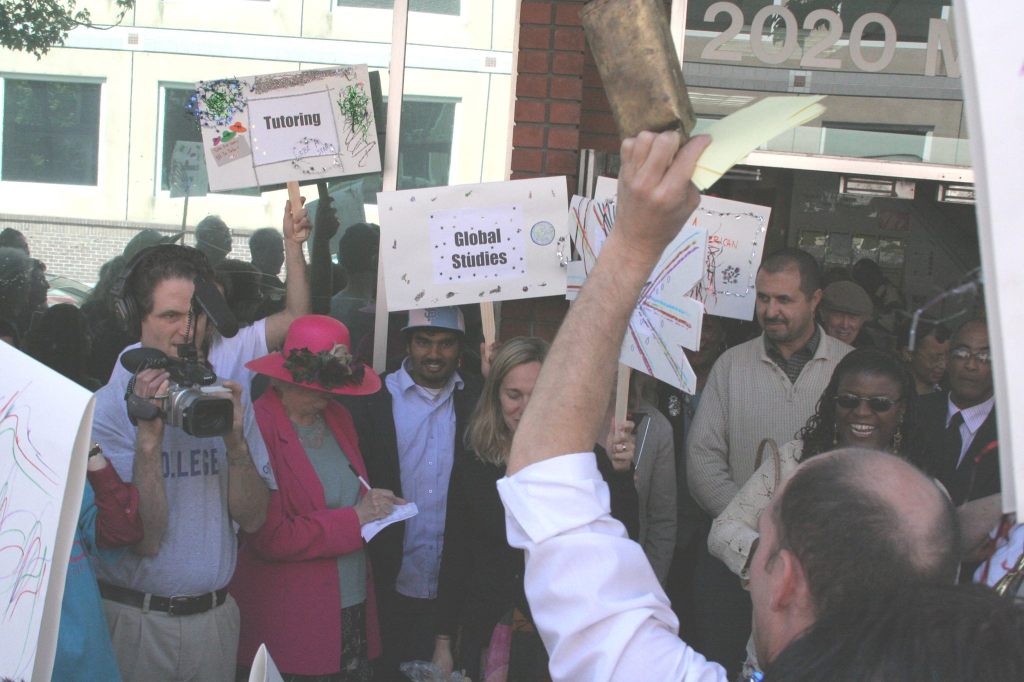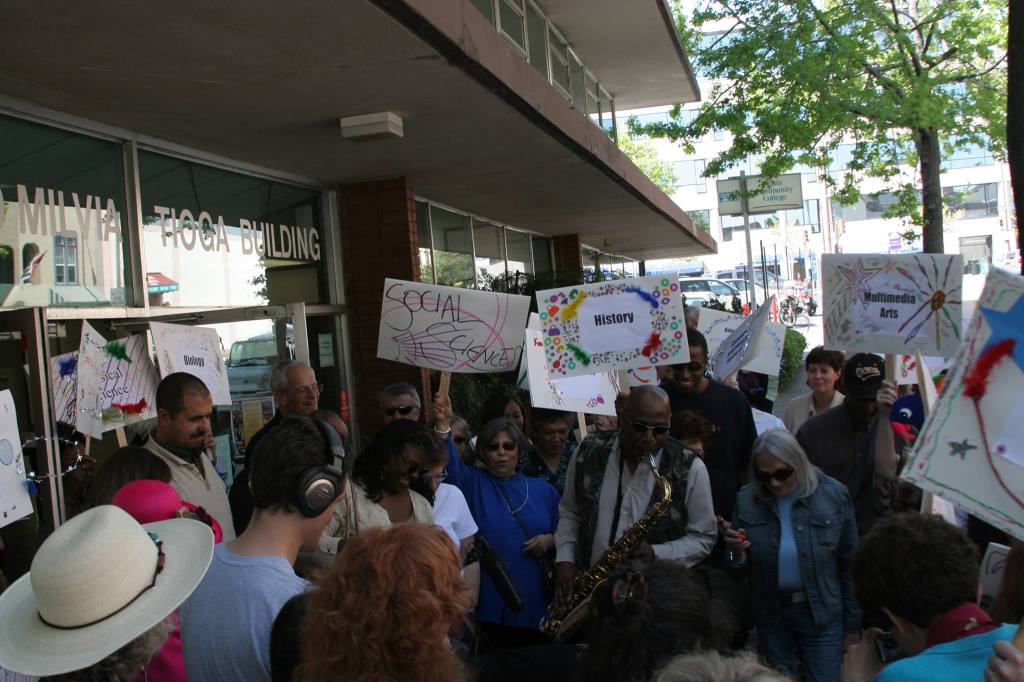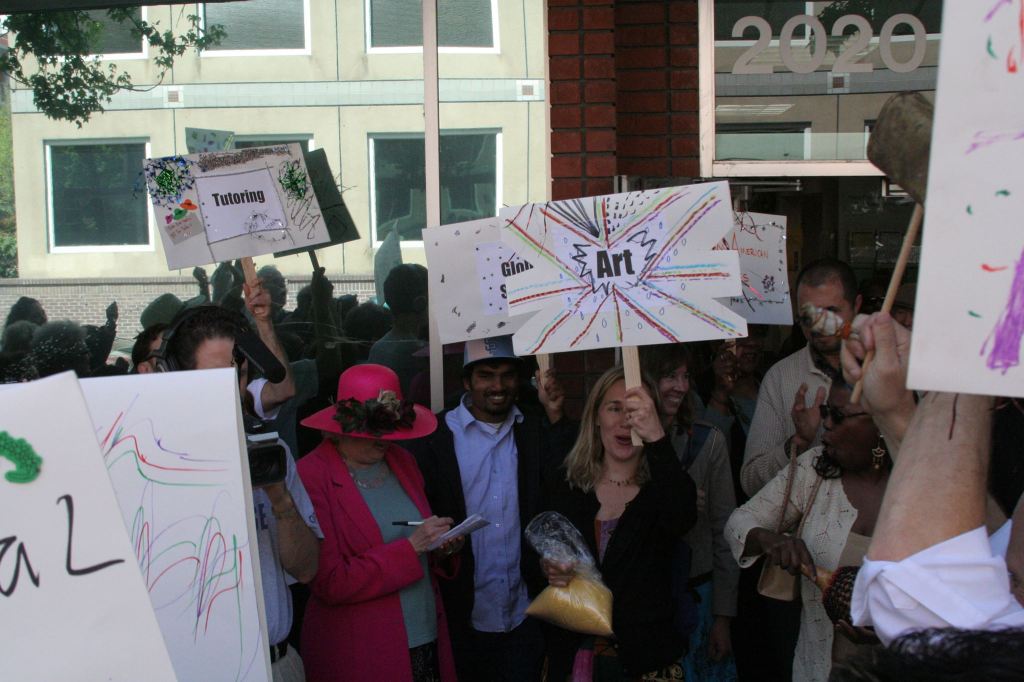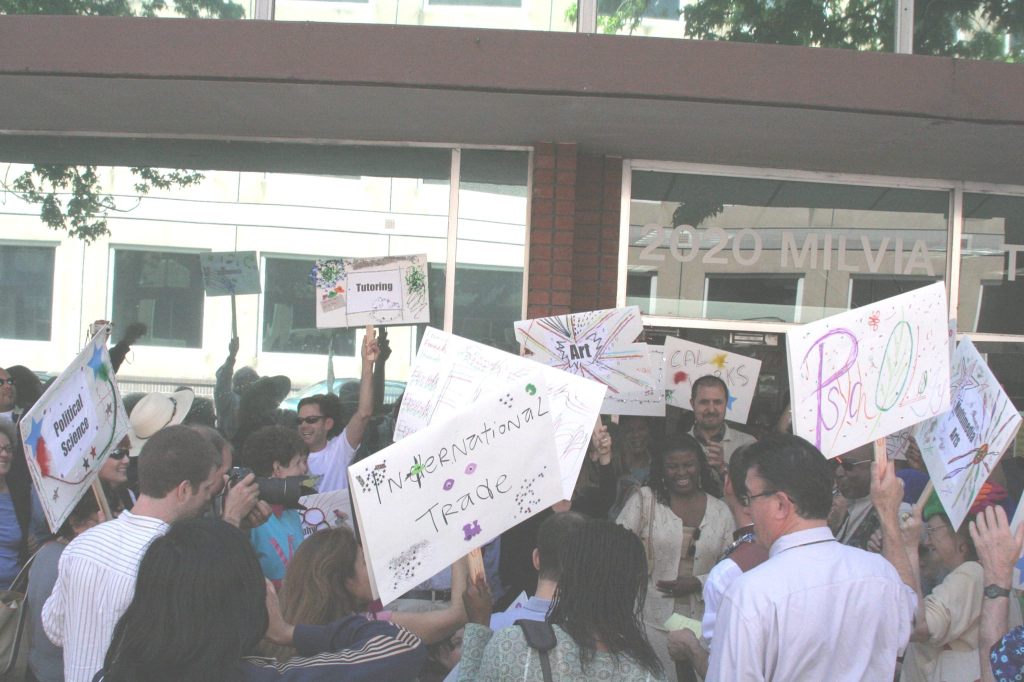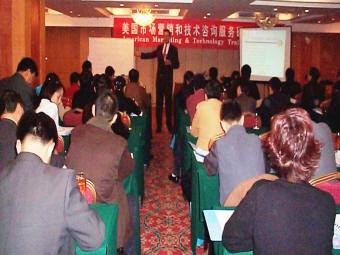BE SMART : CHOOSE THE ROAD TO MOROCCO !
Here is an overview of Morocco’s investment and economic environment that we hope will enhance your interest in developing trade, financial, and cultural relationships with the Moroccan people.
📷TRI CONSULTING KYOTO – TRI CK USA supports you in your investment projects, whatever their form: new sites, extensions, industrial or technological partnerships, acquisitions, or financial investments.
If your company or yourself are looking to benefit from an environment conducive to establishing excellent business relations, you are considering Morocco as the destination of your investing project, for export or the source of your imports and you are going to build a factory and create real jobs and have good returns on your investments, we can help you to find the right connection and facilitate for you the process through our assessment and evaluation of the present conditions of doing business in Morocco. Contact: saidcherkaoui@triconsultingkyoto.com

Discovery: 10,189 Impressions – 5,977 Unique views on the date of 9/10/2024

Morocco ★ USA ★ Morocco ★ California
★ Articles on Morocco ★ USA Relations ★

★ Said El Mansour Cherkaoui ★ Local, Regional and Global Competences ★
From left to right: Tom Bates, California State Senator – Said El Mansour Cherkaoui, Center for International Trade Development – Executive at the Port of Oakland, Picture taken at Vista Community College – Berkeley – 1993 Dr. Said El Mansour Cherkaoui – Developed Strategies and Directed Training on Market and Technology to Strengthen China Trade and … Lire la suite ★ Said El Mansour Cherkaoui ★ Local, Regional and Global Competences ★
Articles on Morocco – USA Relations by Said El Mansour Cherkaoui

InVEst in KinGdom of Morocco
Said El Mansour Cherkaoui – Email: saidcherkaoui@triconsultingkyoto.com Good Day Fellows It is with immense personal pride and a professional sense of dignity to be able in a lifetime to receive representatives of the Country of my birth and growth and my own ancestral family: the Kingdom of Morocco and meet with its highly esteemed government […] Read More
Morocco – USA: Trade and Investment
Said El Mansour Cherkaoui, Ph.D. – – Université de la Sorbonne, Paris III – Institut des Hautes Etudes de l’Amérique Latine, Paris – Sciences Po, Grenoble – TRI CONSULTING KYOTO TRI CK – USA INVITATION AU VOYAGE – Invitation to the Voyage … Promoting, Inviting, and Encouraging investment in Morocco; Invest in the Tangier-Tetouan-Al Hoceima region: Shape the future of your business globally! Invitational … Continue reading
U.S. Takes the First Spot as Direct Investor in Morocco
Author and Editor: Said El Mansour Cherkaoui, Ph.D. – Université de la Sorbonne, Paris III – Institut des Hautes Etudes de l’Amérique Latine, Paris – Sciences Po, Grenoble ★ Posted on – From where I am I can see everyday the Golden Gate Bridge and I think about Extending More Golden Roads and Bridges from the Frisco Bay to Morocco and the Rest of the World to East and West Horizons Les États-Unis détrônent la France du statut du premier investisseur étranger au Maroc … Continue reading


Advantages of Investing in Morocco
Said El Mansour Cherkaoui, Ph.D. – – INVEST IN MOROCCO Morocco is fast becoming one of the best emerging markets for investment. Over the last decade, Morocco has witnessed an accelerated process of political, economic and social reforms, and its steady economic growth and strategic geographic position make it an investment opportunity well worth considering. Morocco’s 2018 Doing Business ranking (69th out of 190 countries), published … Continue reading
Morocco Profile: Investment and Trade Trends
Said El Mansour Cherkaoui, Ph.D. – Posted on ★ ★ ★ ★ ★ ★ Morocco Profile: Investment and Trade Trends ★ Foreign Investment and Foreign Trade ★ Morocco has ratified 72 investment treaties for the promotion and protection of investments and 62 economic agreements – including with the United States and most EU nations – that aim to eliminate the double taxation … Continue reading

Said Cherkaoui International Trade Liaison with California and USA
Said El Mansour Cherkaoui, Ph.D. – – Originally posted on December 19, 2019, 6:09 pm – Republished on 7/2/2023 1993-1994 – Event for the Promotion of Export and International Trade Between California and the Rest of the World that have Shaped my Memories and Destiny don’t necessarily achieve an objective. In California, it All Started in 1993 at the East Bay Small Business … Continue reading“
Favorite Investment Destination: Made in Morocco
Said El Mansour Cherkaoui, Ph.D. – – Morocco’s strategic location at the crossroads of Africa, Europe, and the Middle East makes it an ideal hub for trade, supply chain diversification, and business investment. Morocco is a competitive exporting hub in the region of Euro-African junction. Moroccan economy offers competitive production costs and global access to strategic peripheral and neighboring markets. Morocco is also an … Continue reading

Bridging Trade with Business and Cultures: Africa – Europe – Americas – Asia
Said El Mansour Cherkaoui, Ph.D. – – Berkeley, California, USA Said El Mansour Cherkaoui – Sustainability Management Aug 22, 2023 — How to Improve Performances and Create New Impetus within Entrepreneurial Environment? Said El Mansour Cherkaoui Post to AFRICANA CLUB … Global Center Training – Oakland, California DrCherkaoui › status Apr 28, 2023 … Continue reading
Morocco – USA Past and Current Relations
August 5, 2022 Said El Mansour Cherkaoui Morocco is the Gateway to Africa and the Bridge to Africa, if not Morocco is the Obliged Path to Reach Africa on Maritime Way and Land Space. Morocco is also the Tip of the African Iceberg and the Closed North African Edge to the West Northern Europe. Morocco is … Continue reading

Said El Mansour Cherkaoui: Pro Profile
Said El Mansour Cherkaoui, Ph.D. – – Said El Mansour Cherkaoui is a multifaceted individual with a diverse range of interests and accomplishments: Promotion of Investment in Morocco: Trade and Investment: Based in Northern California, USA, Said El Mansour Cherkaoui is actively involved in promoting, inviting, and encouraging investment in Morocco. He has been instrumental in shaping the future of businesses globally, … Continue reading
Morocco has ratified 71 bilateral investment treaties for the promotion and protection of investments and 60 economic agreements – including with the United States and most EU nations– that aim to eliminate the double taxation of income or gains.
U.S. Trade and Investment with Morocco Revitalized
Said El Mansour Cherkaoui, 12/25/2020 – Northern California Office The US DFC has made several announcements signifying its efforts to expand into Morocco – including the opening of a new Prosper Africa regional office … Continue reading U.S. Trade and Investment with Morocco Revitalized
Maroc Morocco المغرب Marruecos Марокко 摩洛哥 Publications Said El Mansour Cherkaoui
Mai 14, 2019 – Dans les publications présentes dans cette page, le but principal demeure la participation dans le débat national sur le devenir du Maroc et la réalisation d’un authentique, équitable et juste progrès social dont les Marocaines et les Marocains de toutes les confessions et cultures sont les premiers et les ultimes bénéficiaires tout en étant les…Lire la Suite →

What are the reasons for investing in Morocco?

Said El Mansour Cherkaoui, Ph.D. – – TRI CONSULTING KYOTO – TRI CK USA supports you in your investment projects, whatever their form: new sites, extensions, industrial or technological partnerships, acquisitions or financial investments. Morocco Favorite Destination for International Investment BE SMART : CHOOSE MOROCCO ! Here is an overview of Morocco’s investment and economic environment that we hope will enhance your interest … Continue reading
U.S. Trade and Business Mission to Morocco
Business Mission and Trade-Show in Morocco by Said El Mansour Cherkaoui, East Bay Center for International Trade Development – EBCITD Casablanca American Café ‘Play it’: Rick: You know what I want to hear. Sam: No, I don’t. Rick: You played it for her, you can play it for me! Dr. Cherkaoui & Center for International … Continue reading


Invest Morocco Project
Said El Mansour Cherkaoui, Ph.D. – Posted on – Morocco has a diverse and growing economy. Some promising investment opportunities include: In 2021, Morocco attracted the ninth-most foreign direct investment (FDI) in Africa. More than half of the FDI inflows to Morocco have been concentrated in three sectors: real estate activities (27%), manufacturing industries (17.3%), and financial and insurance activities (11.3%). Investing in Morocco: Analysis by … Continue reading
TRI CONSULTING KYOTO TRI CK USA – Said El Mansour Cherkaoui – Email: saidcherkaoui@triconsultingkyoto.com Good Day U.S. and Moroccan Fellows It is with immense personal pride and a professional sense of dignity to be able in a lifetime to receive representatives of the Country of my birth and growth and my own ancestral family: the Kingdom of Morocco and meet with its … Continue reading
Work Experiences of Said El Mansour Cherkaoui
TRI CONSULTING KYOTO TRI CK USA – Good Day U.S. and Moroccan Fellows It is with immense personal pride and a professional sense of dignity to be able in a lifetime to receive representatives of the Country of my birth and growth and my own ancestral family: the Kingdom of Morocco and meet with its highly esteemed government representatives in Northern California … Continue reading
Said El Mansour Cherkaoui and U.S. – Morocco Trade, Business and Investment Missions
TRI CONSULTING KYOTO TRI CK USA – High-level Moroccan Delegation in a Business, Investment and Trade Mission Inviting Silicon Valley – Bay Area U.S. and Moroccan Professionals MAY 10, 2024 – 6:00 PM Event of the Cocktail Reception at FOUR-SEASON HOTEL IN SILICON VALLEY EAST OF PALO ALTO 2050 UNIVERSITY AVENUE, EAST PALO ALTO, CALIFORNIA 94303 U.S.A. – PHONE: 1 (650) 566-1200 LOCATION CONTACT U.S. and … Continue reading
Morocco – USA Past and Current Relations

August 5, 2022 Said El Mansour Cherkaoui Morocco is the Gateway to Africa and the Bridge to Africa, if not Morocco is the Obliged Path to Reach Africa on Maritime Way and Land Space. Morocco is also the Tip of the African Iceberg and the Closed North African Edge to the West Northern Europe. Morocco is … Continue reading“
Road to Morocco: Business Creation and Development
TRI CONSULTING KYOTO TRI CK USA – Morocco has many advantages for business, including: Other advantages include: According to the World Bank, Morocco is ranked 53rd out of 190 economies for ease of doing business. What is business domiciliation in Morocco? Domiciliation consists of choosing as the head office of a company (called domiciliary) the address of another company (called domiciliary). This … Continue reading
California in the World Economy
TRI CONSULTING KYOTO TRI CK USA – Education is the Key of Global Horizons and Spaces California’s economy has surpassed that of the United Kingdom to become the world’s fifth largest, according to new federal data made public Friday May 4, 2018. California is home to nearly 40 million people which represent 12 percent of the U.S. population but contributed 16 percent … Continue reading
USMO: United States and Morocco
TRI CONSULTING KYOTO TRI CK USA – Initially published on December 1, 2023, 5:45 AM – Updated on 6/11/2024 on 5:45 PM – Morocco Morocco ★ USA ★ Morocco ★ California★ Articles on Morocco ★ USA Relations ★ Stamp on Moroccan-American Treaty of Peace and Friendship Treaty of Peace and Friendship between the United States and the Moors Morocco ★ USA ★ Morocco ★ … Continue reading



Investment and Trade Moroccan Delegation in USA

Moroccan Diaspora Worldwide Network Dear Moroccan Professionals in Silicon Valley, Looking forward to welcoming you! The venue will be shared shortly. Confirmations – PREVIOUS ANNOUNCEMENT PRESENTED HERE ONLY FOR ARCHIVAL REFERENCE – CHECK THE AFOREMENTIONED UPDATE Moroccan Official Delegation will be in the USA from May 6th to 14, 2024: Texas – California – Washington State … Continue reading
Said El Mansour Cherkaoui International Liaisons
• Said El Mansour Cherkaoui Ph.D. • You ★ Senior Policy and Business Adviser ★ Consultant ★ News Executive Editor ★ Public Speaker ★★ ★ Admin • 2d • TRI CONSULTING KYOTO – TRI CK USA 549 followers • info@triconsultingkyoto.com Said El Mansour Cherkaoui – U.S. Trade and Business Mission to Morocco Said El Mansour … Continue reading

Casablanca Play it again, Sam Scene at American Cafe

Morocco ★ USA ★ Morocco ★ California
With EBCITD – Said El Mansour Cherkaoui Representing 25 US / Californian Companies at Casablanca – Morocco

American Café at Casablanca – Morocco attended by Said Cherkaoui representing the EBCITD and 25 US Food companies. This trade show was a facilitator for the upcoming negotiations and the signature of the US – Morocco Free Trade Agreement. I met with Exporters, Importers, Heads of the Largest companies and Decision-Makers at local and regional and National levels.
Originally posted on December 19, 2019 @ 6:09 pm – Republished on 7/2/2023
To Facilitate the signing of the US – Morocco Free Trade Agreement, the USFDA, the US State Department, the US Embassy in Morocco organized the Casablanca Cafe, Trade show with US based food companies seeking to establish relations with the Moroccan business community
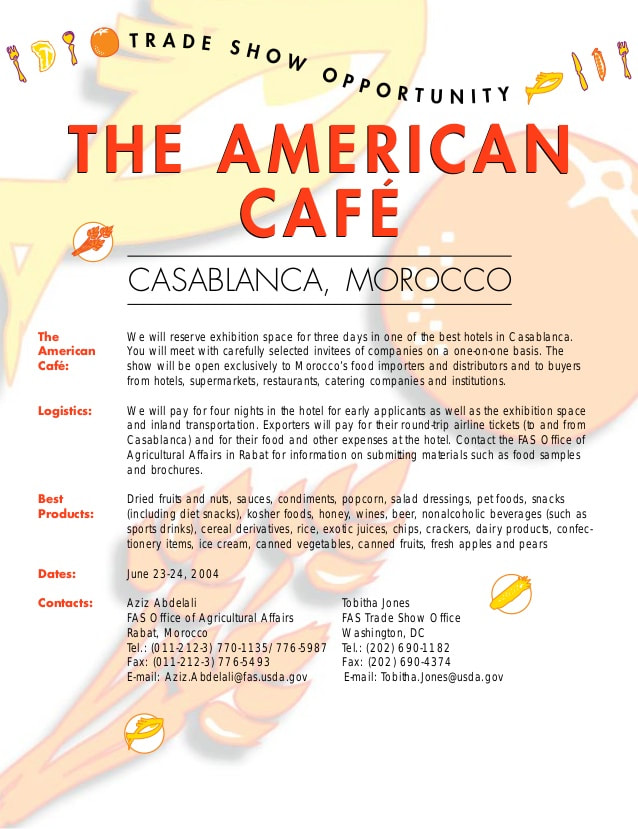
Dr. Cherkaoui represented 25 food products / companies from California and the United States at the American Cafe / Trade Show organized by the U.S. FDA and the U.S. State Department at Casablanca, Morocco.
Made in Morocco with Moroccan Legacy
Dr. Cherkaoui & Center for International Trade Development ★ CITD in Morocco
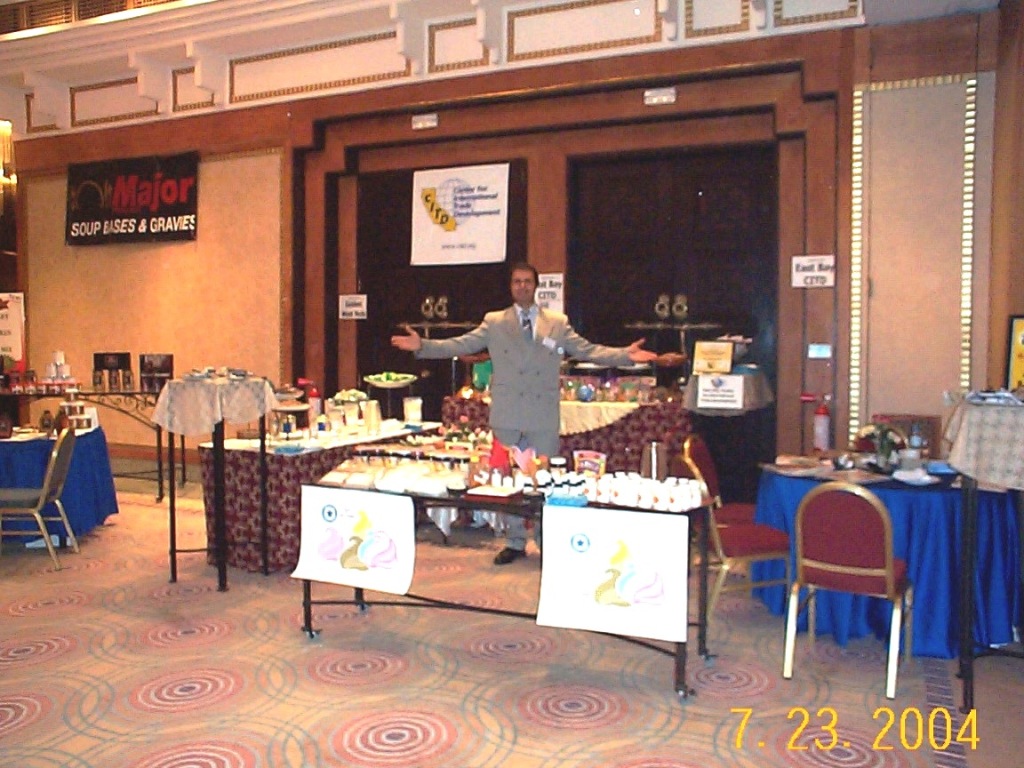

Dr. Cherkaoui & Center for International Trade Development ★ CITD in Morocco







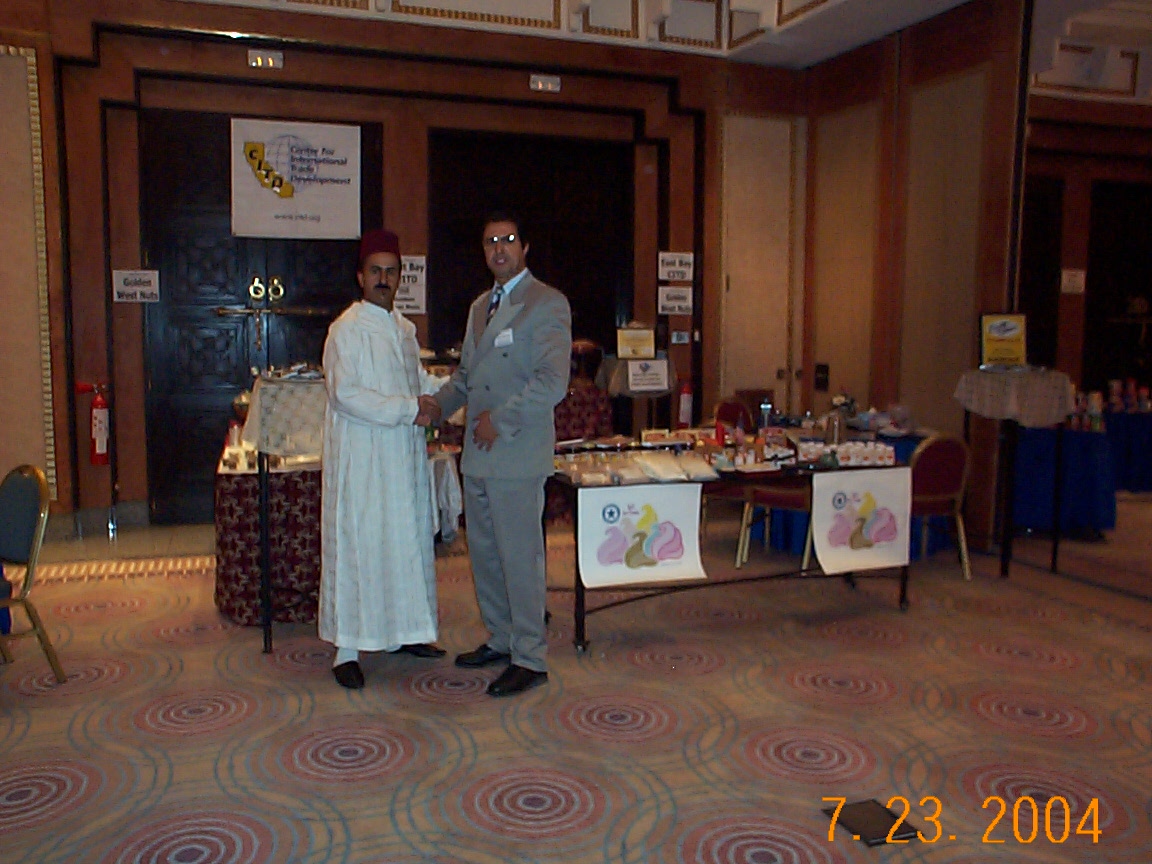
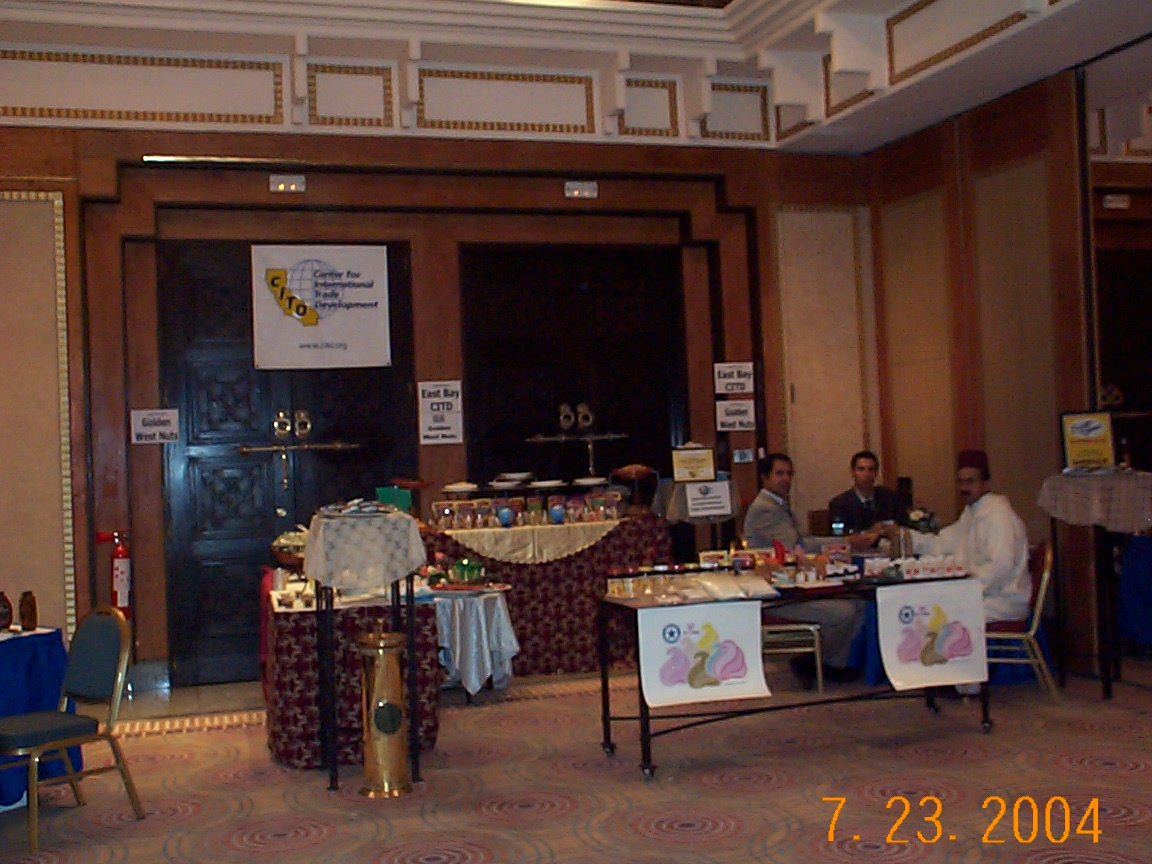
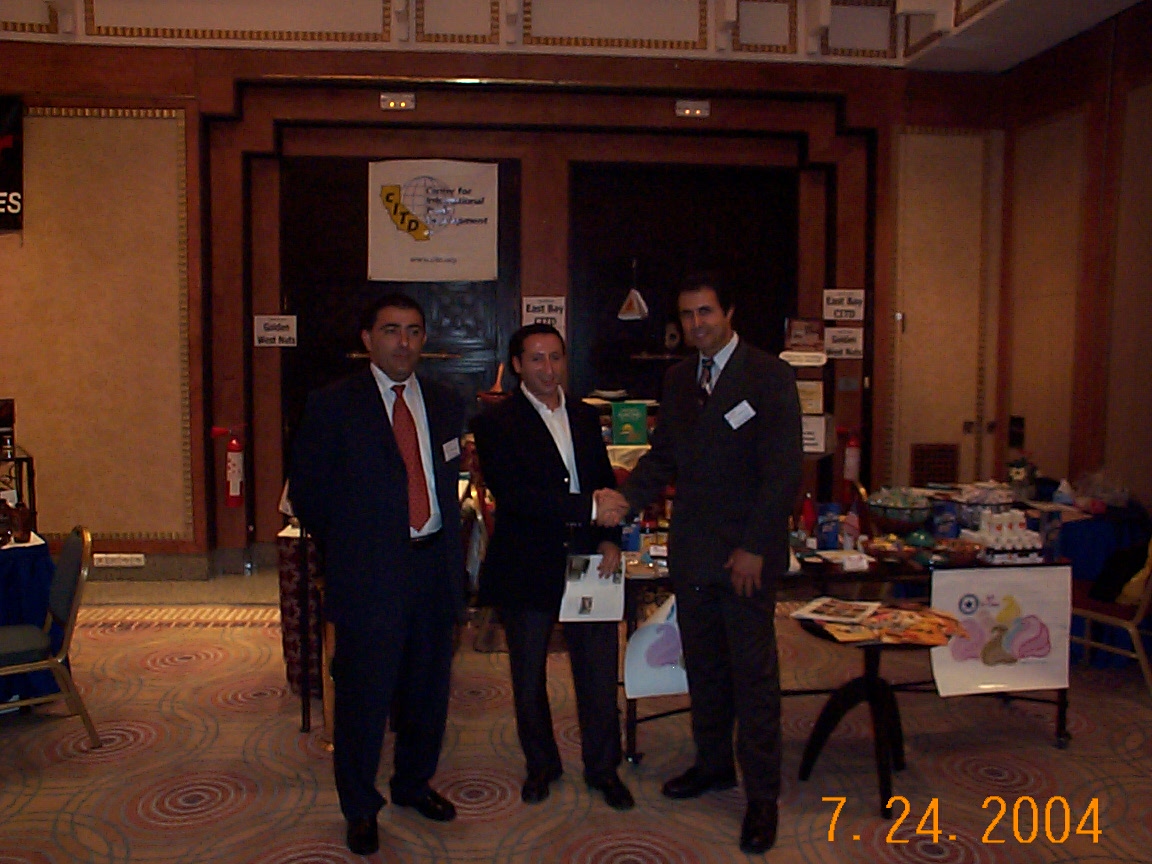
Made in Morocco with Moroccan Legacy
Miloud Chaabi, the Moroccan Version of William Russell Grace – Continue reading Miloud Chaabi, the Moroccan Version of William Russell Grace MAY 29, 2020
Chaabi Family is the Sole Owner of Ynna Group, Largest Moroccan Private Business
Morocco; Ynna Group et Group Chaabi
Miloud Chaabi Founder of the Chaabi Group and Ynna Group
Dr. Said El Mansour Cherkaoui and Faouzi Chaabi at Rabat – Morocco
NATIONAL COUNCIL FOR TRADE – CASABLANCA – MOROCCO

1993-1994 – Event for the Promotion of Export and International Trade Between California and the Rest of the World that have Shaped my Memories and Destiny
In California, it All Started in 1993 at the East Bay Small Business Development Center, at Green Breurner’s Building, the Former Largest Department Furniture Store at the 7th Floor with Ms. Selma Taylor as the Executive Director and Dr. Said El Mansour Cherkaoui as the Business Consultant
The Breuner Building at 2201 Broadway, Oakland, California became the site of the John Breuner Furniture Company in 1931. The art deco terra cotta masterpiece was designed by prominent local architect Albert Roller.
Historical landmark columnist Annalee Allen called the Breuner Building “an eight-story reinforced concrete building with a distinctive variegated sea-green glazed terra cotta front facade, constructed in 1931 to house the John Breuner Furniture Company store. Other noteworthy features of the building include Art Deco motifs, and a pair of stylized figures crafting a chair located over the front entrance.”
The Oakland store was closed in the 1970’s and sold by the company where, following renovation, the historic building reopened as an office building in the late 1970’s.
The California Genealogical Society moved into the former Breuner Building in March 2007. As of 2012, the appearance of Ikea furniture, large yoga balls for sitting, and a flyer on the door indicating an entrance on the side heralded the move-in of a startup on the ground floor of the building – Spark Art.
Location: 2201 Broadway, Oakland, California
Additional Links
- The Breuner Building ~ a gem in sea-glass green – OakTownArt.com
- A Photograph of Bygone Days – CaliforniaAncestors.org

Tom Bates, California State Senator – Said El Mansour Cherkaoui, Center for International Trade Development – Executive at the Port of Oakland, Picture taken at Vista Community College – Berkeley

Morocco
Treaty of Peace and Friendship between the United States and the Moors
https://platform.twitter.com/widgets.jsمهتم بالتاريخ والتجسس🕵️♀️؟ تفضل بزيارة أحدث معرض تابع للمفوضية الأمريكية بطنجة، بما في ذلك غرفة كانت عبارة عن مركز استماع تابع لمكتب الخدمات الإستراتيجية أثناء الحرب العالمية الثانية. pic.twitter.com/2k4wJvU4qa
— U.S. Embassy Morocco (@USEmbMorocco) November 18, 2022

The Moroccan-American friendship up-to-this date [2019] has lasted more than 240 years: The Barbary Treaties 1786-1816 Treaty with Morocco June 28 and July 15, 1786
Treaty of Peace and Friendship, with additional article; also Ship-Signals Agreement. The treaty was sealed at Morocco with the seal of the Emperor of Morocco June 23, 1786 (25 Shaban, A. H. 1200), and delivered to Thomas Barclay, American Agent, June 28, 1786 (1 Ramadan, A. H. 1200). Original in Arabic. The additional article was signed and sealed at Morocco on behalf of Morocco July 15, 1786 (18 Ramadan, A. H. 1200). Original in Arabic. The Ship-Signals Agreement was signed at Morocco July 6, 1786 (9 Ramadan, A. H. 1200). Original in English.
Certified English translations of the treaty and of the additional article were incorporated in a document signed and sealed by the Ministers Plenipotentiary of the United States, Thomas Jefferson at Paris January 1, 1787, and John Adams at London January 25, 1787.
Treaty of Peace and Friendship between the United States and the Moors
Moorish Agreements with USA Government
Said El Mansour Cherkaoui, Ph.D. – Posted on December 1, 2023 – Moorish Agreements Moorish Agreements [ Back To Moorish Law Page ] MOORISH AGREEMENTS MADE WITH THE USA GOVERNMENT. Treaty of Peace and Friendship, with additional article; also Ship-Signals Agreement. The treaty was sealed at Morocco with the seal of the Emperor of Morocco on June 23, 1786 (25 Shaban, A. H. 1200), and delivered to Thomas … Continue reading“Moorish Agreements with USA Government”
America and the Moors: Early Recognition
Said El Mansour Cherkaoui, Ph.D. – Posted on – Inquiry and Info: saidcherkaoui@triconsultingkyoto.com Morocco’s Early Recognition of American Independence in 1778 Morocco Early Diplomatic Correspondance and Exchange of Recognition with the United States of America Morocco the First Nation to Recognize the Independence of the United States of America Morocco was the first country to recognize the United States independence on December 20, 1777, … Continue reading“America and the Moors: Early Recognition”
Treaty and additional article ratified by the United States July 18, 1787. As to the ratification generally, see the notes. Treaty and additional article proclaimed July 18, 1787.
Ship-Signals Agreement not specifically included in the ratification and not proclaimed; but copies ordered by Congress July 23, 1787, to be sent to the Executives of the States (Secret Journals of Congress, IV, 869; but see the notes as to this reference).
[Certified Translation of the Treaty and of the Additional Article, with Approval by Jefferson and Adams)
★ Dr. Said El Mansour Cherkaoui Invited by the Central and Provincial Governments of China in 2004★
欢迎 慷慨和善良
Direct Relations with Chinese People from 1994 to Now – October 8. 1994 to October 29, 1994 – Dr. Said Cherkaoui and Laurent Roffe Developed Business and Trade Connections Between California and China and provided training programs to the first Chinese Research and Development Delegation
Dr. Said El Mansour Cherkaoui invited by the central and provincial governments of China in 2004
新年快乐 – Xīnnián Kuàilè
★ Dr. Said El Mansour Cherkaoui Invited by the Central and Provincial Governments of China ★
★ Dr. Said El Mansour Cherkaoui facilitated the meeting of High level Executive, Managers and Scientists in China and their American Peers – Contributed in the Trade Development of China and California and Southern Europe ★
Guiyang – Guizhou – China and Great Man at Great Wall
★ Dr. Cherkaoui facilitated Business Deals and Contacts Between High level Executives / Managers in Export – Import and Scientists from China with their Californian Peers ★
Dr. Cherkaoui organized and presented Multiple International Conferences in Collaboration with the U.S. Department of Commerce, the US Small Business Department, the US Small Business Association, 2 East Bay and Bay Area Centers for International Trade Development and other local business professional representatives organizations, and the Chambers of Commerce around the Bay Area of San Francisco

Dr. Cherkaoui presenting Business Opportunities in Morocco and Africa North Saharan Regions
Attendees at the Africa Conference Sponsored by the US Commercial Service at the U.S. Department of Commerce

International Conference on Africa
Historical Analysis of Doing Business in North Saharan and West Africa by Dr. Said El Mansour. cherkaoui from
https://www.slideshare.net/slideshow/embed_code/key/tMRVk1wAeYNv7S
ROAD TO MOROCCO – AFRICA

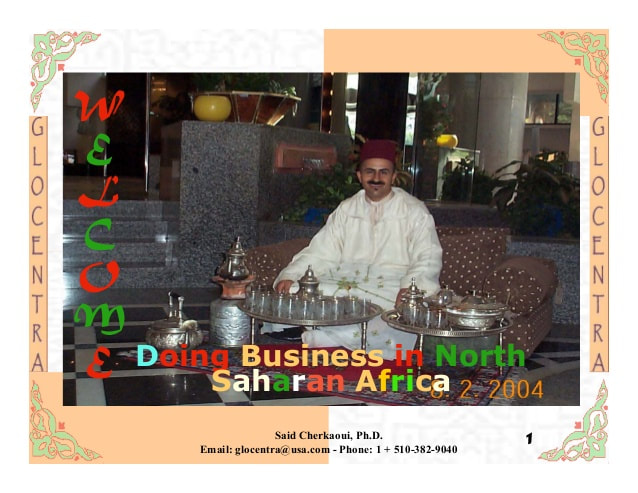
International Conference on North Saharan Africa – Morocco – Algeria – Tunisia and Senegal – CITD and other Federal and California Institutions
Conference on Africa with US Department of Commerce, San Francisco
Email address and Phone Number have changed, please use this email for contact: saidcherkaoui@triconsultingkyoto.com
Dr. Cherkaoui’s presentation on AGOA and U.S. – Africa Relationship
Claremont Club & Spa, A Fairmont Hotel
★ International Conference on AGOA and Africa ★ Oakland – Berkeley ★ California ★ USA ★ Claremont Club & Spa, A Fairmont Hotel
AFRIQUE – USA – AFRICA and Said El Mansour Cherkaoui
International Conference on Africa, I initiated and organized with the EBCITD (East Bay Center for International Trade Development) Oakland, California.
So to combine the useful with the pleasant, I published all these photos with first that of Africa over my shoulders. This photo dates from 2001, the year I suggested and participated in the organization of the First International Conference on Africa held in Northern California at Berkeley. Another will follow later in San Francisco in 2007.
I complete this first photo with others such as the one where the former CEO of the African Development Bank (Dr. Babacar Ndiang) was holding my hand and I am surrounded by African-American executives, one during one of my presentations and others showing a partial view of the audience.
Conférence Internationale sur l’Afrique a Claremont Hotel, Berkeley, California, USA
Since my early studies at Institut des Etudes Politiques of the Grenoble University, France, the development and integration of Africa were at the forefront of my studies and topics of my presentations in seminaries and essay papers. It was natural that I continue to work and increase the awareness about Africa and its need of establishing new kinds of relations with other countries other than the past metropolitan and colonialists.
Here below among other pictures, there is a photo taken in the company with the Regretted Dr. Babacar Ndiaye, former CEO of the African Development Bank Group who hold firmly my hand and is standing at my left side.
I extended the invitation to Dr. Boubacar N’diaye for his presence among us at this International Conference on Africa. He was delighted about my presentation and we also sat together and had lunch at the same table. Wonderful Man with full love for Africa and Africans and who initiated a series of important financial and operational measures: the African Businessmen Round Table, the creation of the African Bank for import-export (Afreximbank) and the setting up of a special easy financing for the African private sector (investors and entrepreneurs) without the guarantee of their governments.
On my right hand is Dr. Faheem Director of the Center for International Trade Development, on the other left side and holding my hand is Dr. Boubacar N’diaye, Chairman of the African Development Bank from 1985 to 1995 and honorary chairman of the same institution (Rest in Peace among the Blessed ones, Ameen)
Here below among other pictures, there is a photo taken in company with the Regretted Dr. Babacar Ndiaye, former CEO of the African Development Bank Group who hold firmly my hand and is standing at my left side.
On my right hand is Dr. Faheem Director of the Center for International Trade Development, on the other left side and holding my hand is Dr. Boubacar N’diaye, Chairman of the African Development Bank from 1985 to 1995 and honorary chairman of the same institution (Rest in Peace among the Blessed ones, Ameen)
Conference on North Saharan and Sub-Saharan Africa – US Department of Commerce – San Francisco – California
International Conference on Africa
★ EBCITD & GLOCENTRA ★
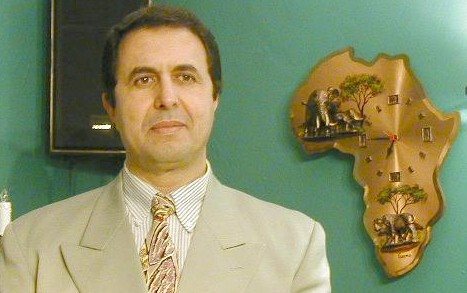
International Conference on Africa, Berkeley, California, USA
Since my early studies at Institut des Etudes Politiques of the Grenoble University, the development and integration of Africa were at the forefront of my studies and topics of my presentations in seminaries and essay-papers. It was natural that I continue to work and increase the awareness about Africa and its needs of establishing new kind of relations with other countries other than the past metropolitan and colonialists.
I initiated and developed a workplan on the organization of The International Conference on Africa took place in 2001. The first time in the history of the Bay Area of San Francisco and North California to have a conference of such magnitude and subject. that I submitted to Fazale Sharif the Director of the EBCITD which I was the initiator and for which I and participated directly in its organization. I contacted and invited Dr. Babacar Ndiaye and in the following photo, event / photo took place is during an International Conference on Africa I had organized in Oakland, California and of which Dr. Babacar Ndiaye, Rahimahu Allah was our Guest of Honor.
Here below are listed links which content present among others some illustrations of my activities in regard to the Integration of Africa with which I was directly involved, including the facilitation of the signing of the Free Trade Agreement between the United States and Morocco.
For many among us, time flies through horizons without leaving traces on recognition and gratitude on what we have achieved for the good for others especially in my case not be born in the United States but I remain up to now the maker of differences between cultures and the guardian of the memories I cherish and remember through my meetings and interactions with the real treasuries of the Humanity.
The second link below presents “The ADB honors its former president, the late Babacar Ndiaye: https://www.afdb.org/en/news-and-events/the-afdb-pays-tribute-to-late-president-babacar-ndiaye-17363
I extended the invitation to Dr. Boubacar N’diaye for his presence among us at this International Conference on Africa. He was delighted about my presentation and we also sat together and had lunch at the same table. Wonderful Man with full love for Africa and Africans and who initiated a series of important financial and operational measures: the African Businessmen Round Table, the creation of the African Bank for import-export (Afreximbank) and the setting up of a special easy financing for the African private sector (investors and entrepreneurs) without the guarantee of their governments.
The Conference Room was packed with U.S. and Foreign officials and Executives as well as faculties and Researchers on Africa and the Place where all these interactions took place was the fabulous and monumental Claremont Hotel in Berkeley, Northern California.

GLOCENTRA is a leading executive training firm committed to serving clients in the United States, France, the Middle East, North Africa, and Southeast regions. Our team is dedicated to helping clients improve their business performance and attain sustainable long-lasting results by introducing/reinforcing new learning and skills.
Over and above an extensive international exposure with assignments implemented in more than 15 markets, our trainers have a wide industry expertise. We put at the disposal of our clients a team with extensive experience in developing and delivering executive trainings and workshops in many areas ranging from basic hard skills to more complex soft skills including leadership, team working, negotiation and communications skills

I initiated and developed a work plan on the organization of The International Conference on Africa took place in 2001. The first time in the history of the Bay Area of San Francisco and North California to have a conference of such magnitude and subject. that I submitted to Fazale Sharif the Director of the EBCITD which I was the initiator and for which I participated directly in its organization. I contacted and invited Dr. Babacar Ndiaye and in the following photo, the event/photo took place during an International Conference on Africa I had organized in Oakland, California, and of which Dr. Babacar Ndiaye, Rahimahu Allah was our Guest of Honor.
Here below are listed links which content present among others some illustrations of my activities in regard to the Integration of Africa with which I was directly involved, including the facilitation of the signing of the Free Trade Agreement between the United States and Morocco.
For many among us, time flies through horizons without leaving traces of recognition and gratitude for what we have achieved for the good of others especially in my case not be born in the United States but I remain up to now the maker of differences between cultures and the guardian of the memories I cherish and remember through my meetings and interactions with the real treasuries of the Humanity.
The second link below presents “The ADB honors its former president, the late Babacar Ndiaye:
https://www.afdb.org/en/news-and-events/the-afdb-pays-tribute-to-late-president-babacar-ndiaye-17363
The AfDB pays tribute to late President Babacar Ndiaye
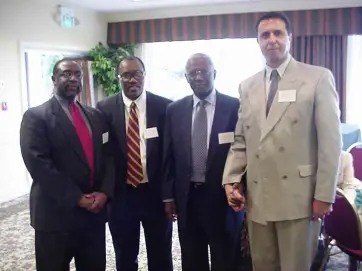
afdb.org
The African Development Bank (AfDB) will pay tribute to honor its former President, late Dr. Bab…
The Conference Room was packed with U.S. and Foreign officials and Executives as well as faculties and Researchers on Africa and the Place where all these interactions took place was the fabulous and monumental Claremont Hotel in Berkeley, Northern California.

Dr. Said El Mansour Cherkaoui Conducting a Presentation during the International Conference on Africa
December 6, 1994 – AFRICA – EGYPT
– Dr. Said El Mansour Cherkaoui as Co-Chair and Laurent Roffe as the Chair of the International Business Committee Organized the First Visit of the Federation of the Egyptian Chambers of Commerce to California – Business Meeting at the Golden Gate University where Dr. Said Cherkaoui has taught in various Schools and Departments for 16 years as Adjunct Associate Professor from 1987 to 2003
Laurent Roffee and Dr. Cherkaoui organized the visit of the Federation of the Egyptian Chambers of Commerce to California and this Conference – Meeting at the Golden Gate University
Dr. Cherkaoui Co-Chair of International Business Committees at the San Francisco Chamber of Commerce
Dr. Cherkaoui Co-Chair of International Business Committees at the San Francisco Chamber of Commerce
Federation of the Egyptian Chambers of Commerce to California at the Business Conference – Meeting at the Golden Gate University, San Francisco – December 6, 1994
Laurent Roffee and Dr. Cherkaoui facilitated the signing of the Trade Treaty between San Francisco Chamber of Commerce and the Federation of the Egyptian Chambers of Commerce
Laurent Roffee and Dr. Cherkaoui facilitated the signing of the Trade Treaty between San Francisco Chamber of Commerce and the Federation of the Egyptian Chambers of Commerce
October 23 1994, Dr. Said El Mansour Cherkaoui and Dr. Barbara Beno Presidente of Vista Community College in front of her office where the first office of the Center of International Trade Development was located
Dr. Barbara Beno Presidente of Vista Community College and Dr. Said El Mansour Cherkaoui Consultant at CITD
Tom Bates (California Assembly and Mayor of Berkeley), Said El Mansour Cherkaoui and Senior Official of the Port of Oakland 27/10/1994
USA – Testimonials Recognizing the Business Achievements and Competences of Dr. Said El Mansour Cherkaoui
dr.-said-el-mansour-cherkaoui-international-business-letters-usaDownload
France and USA – Letters of Recommendations on Research and Academic Teaching by Dr. Said El Mansour Cherkaoui
Dr. Said El Mansour Cherkaoui Teaching US Pilots at the Travis Air Force Base
Recommendation by Dr. Wesley Young, Director, Services for International Students and Scholars at University of California, Davis –
I was the Director of Graduate Business Programs at Dominican University of San Rafael, when Dr. Cherkaoui was teaching in our international MBA program. Said brought not only a solid academic background to the classroom, but also a wealth of business experience both in the US and in Asia and Latin America. He is passionate about his students and his work outside the classroom. This made him one of the most effective faculty that we had teaching at the time.
Said El Mansour Cherkaoui at the US Department of Commerce, San Francisco conducting a Presentation on Africa and Northwest Africa
Recommendation by Ersan Ertuzun, Corporate Communications Supervisor at WTC Istanbul
https://www.wtca.org/world-trade-center-istanbul
Dr. Said Cherkaoui is an exceptional figure in international business development. His broad range of expertise covers all ranges of economic development, with such accomplishments in international trade consulting, trade missions, small business development, just to name a few..
Dr. Cherkaoui has successfully conducted numerous trade missions, represented U.S. companies at trade shows, and helped companies develop their businesses overseas. His academic works have a significant contribution to the global business community, executives in world trade, and entrepreneurs.
I worked with Dr. Cherkaoui at the East Bay Center for International Trade Development. His expertise and services included and not limited to:
Always a role model and source of influence, Dr. Cherkaoui possesses extensive hands-on experience in a wide range of industries, as well as academic achievements, in the field of international trade and economic development.
Dr. Said El Mansour Cherkaoui
Center for International Trade Development – CITD
At the EBCITD, Dr. Cherkaoui created and conducted certified workforce development and training programs and international business, sales and trade operations.
Since 1993, Dr. Cherkaoui conducted training on Market and Technology to Strengthen California Trade Relationship with markets, compagnies and countries that are located in Europe, Africa, Middle East and Asia
Said El Mansour Cherkaoui Websites and Social Media
Dr. Said El Mansour Cherkaoui Developed Strategies, Organized Visits, Meetings and Conferences and Directed Training with the East Bay Center for International Trade Development and other trade organizations to Strengthen California Trade and Business Relations in Asia (China, India and Vietnam), (North and West), Europe (North and Euro-Mediterranean Regions) and Middle East (Egypt, Saudi Arabia and Gulf States)

From Casablanca to Shanghai to Strengthen California International Trade Relations by Said El Mansour Cherkaoui
Salam Alikoum – 新年快乐 – Xīnnián Kuàilè
★ Dr. Cherkaoui facilitated the meeting of High level Executive, Managers and Scientists from China with their American Peers ★
Dr. Cherkaoui Developed Business and Trade Connections Between California and China Since 1994


2005 – Trade Show on Export and Import from California organized by Said El Mansour Cherkaoui, CITD and the Bay Area Chambers of Commerce [Black Chamber of Commerce, Alameda County Hispanic Chamber of Commerce, Oakland Chamber of Commerce, Emeryville Chamber of Commerce, Berkeley Chamber of Commerce, San Francisco Chamber of Commerce and San Jose Chamber of Commerce ]
BERKELEY – OAKLAND – SAN FRANCISCO – SILICON VALLEY – CALIFORNIA – USA
Capacity Building and Workforce Development Training Program
Samples of Certified Training Developed and Conducted by Dr. Said El Mansour Cherkaoui
Created and Conducted by Said El Mansour Cherkaoui for the Workforce Development Progra – EBCITD
USA – Testimonials Recognizing the Achievements and Competences of Dr. Said El Mansour Cherkaoui
Connecting Culture, Politics, Business and Academia around the World
La Comunidad Hispana – California
As Business Consultant at the East Bay Small Business Development Center and the Center for International Trade Development (including the East Bay Center for International Trade Development) between 1993 to 1998 and 2001 to 2007, I have worked with the Hispanic communities and their business executives and individual entrepreneurs as well as the Hispanic Chamber of Commerce of Alameda County and Sacramento.
Dr. Said El Mansour Cherkaoui, representante del Centro para el Desarrollo del Comercio Internacional (CITD) y Marruecos en una sesión ejecutiva de trabajo y una recepción organizada por las Cámaras Hispanas de Comercio de California, Condado de Alameda, Estados Unidos de America (www.cahcc.com).
Recommendation by Dr. Wesley Young, Director, Services for International Students and Scholars at University of California, Davis –
I was the Director of Graduate Business Programs at Dominican University of San Rafael, when Dr. Cherkaoui was teaching in our international MBA program. Said brought not only a solid academic background to the classroom, but also a wealth of business experience both in the US and in Asia and Latin America. He is passionate about his students and his work outside the classroom. This made him one of the most effective faculty that we had teaching at the time.
Global Center for Trade – Glocentra http://www.glocentra.weebly.com
Recommendation by Ersan Ertuzun, Corporate Communications Supervisor at WTC Istanbul
https://www.wtca.org/world-trade-center-istanbul
Dr. Said Cherkaoui is an exceptional figure in international business development. His broad range of expertise covers all ranges of economic development, with such accomplishments in international trade consulting, trade missions, small business development, just to name a few..
Dr. Cherkaoui has successfully conducted numerous trade missions, represented U.S. companies at trade shows, and helped companies develop their businesses overseas. His academic works have a significant contribution to the global business community, executives in world trade, and entrepreneurs.
I worked with Dr. Cherkaoui at the East Bay Center for International Trade Development. His expertise and services included and not limited to:
Always a role model and source of influence, Dr. Cherkaoui possesses extensive hands-on experience in a wide range of industries, as well as academic achievements, in the field of international trade and economic development.

Said El Mansour Cherkaoui: International Conferences, International Expo, International Culture and Sport Conglomeration
Public-Private Instaured Synergistic Relation in the Bay Area Collaborated on Reaching Foreign Marketplaces
Dr. Cherkaoui organized and presented Multiple International Conferences
Dr. Said El Mansour Cherkaoui
Center for International Trade Development – CITD
At the EBCITD, Dr. Cherkaoui created and conducted certified workforce development and training programs and international business, sales and trade operations.
Collaboration with the US Department of Commerce, the US Small Business Department, the US Small Business Association, the 2 East Bay and Bay Area Centers for International Trade Development other local business professional representatives organizations, and the Chambers of Commerce around the Bay Area of San Francisco



International Conference on Africa
Historical Analysis of Doing Business in North Saharan and West Africa by Dr. Said El Mansour. cherkaoui from Said El Mansour Cherkaoui, Ph.D.

Conference on Africa with US Department of Commerce, San Francisco
Email address and Phone Number have changed, please use this email for contact: saidcherkaoui24@gmail.com
ROAD TO MOROCCO – AFRICA

Business Mission and Trade-Show in Morocco by Said El Mansour Cherkaoui, East Bay Center for International Trade Development – EBCITD
Casablanca American Café
‘Play it’: Rick: You know what I want to hear. Sam: No, I don’t. Rick: You played it for her, you can play it for me!

At the House of my Birth in Morocco ★ El Jadida – Doukkala – Morocco – The House was built by my Father in 1925
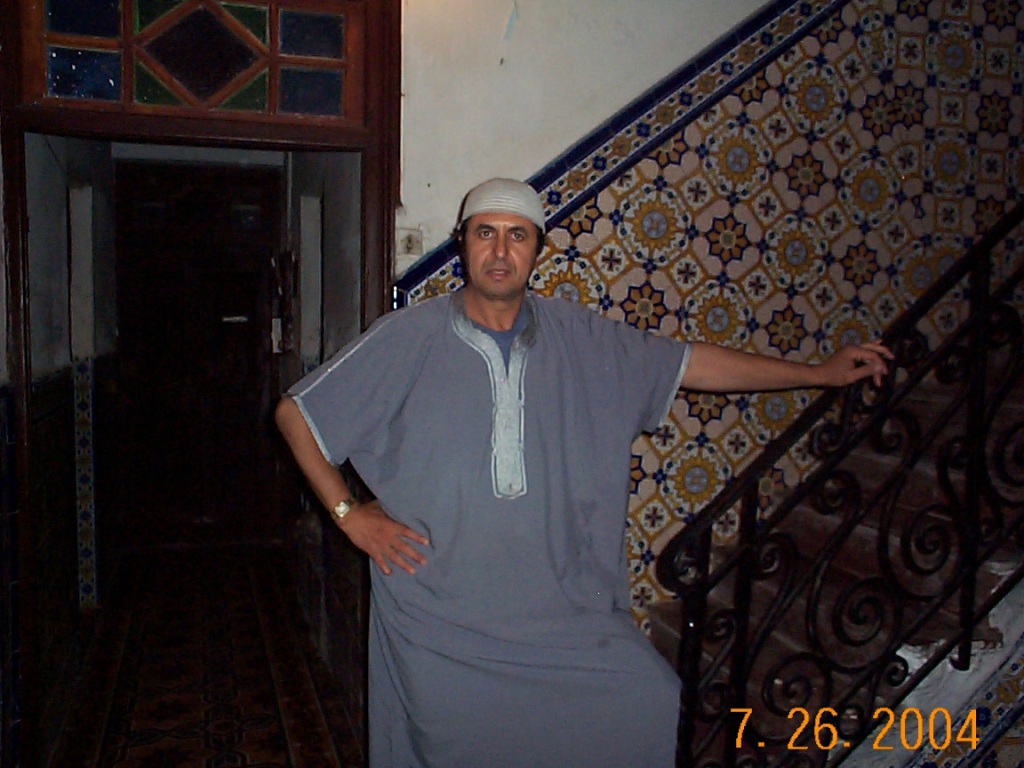
At the House of my Birth in Morocco ★ El Jadida – Doukkala – Morocco – The House was built in 1925 by my Father Moulay Ahmed Cherkaoui. … Read More

At the House of my Birth in Morocco ★ El Jadida – Doukkala – Morocco – The House was built in 1925 by my Father Moulay Ahmed Cherkaoui. … Read More
Dr. Cherkaoui & Center for International Trade Development ★ CITD in Morocco

Dr. Cherkaoui represented 25 food products/companies from California and the United States at the American Cafe / Trade Show organized by the U.S. FDA and the U.S. State Department in Casablanca, Morocco

Miloud Chaabi, the Moroccan Version of William Russell Grace – Continue reading Miloud Chaabi, the Moroccan Version of William Russell Grace
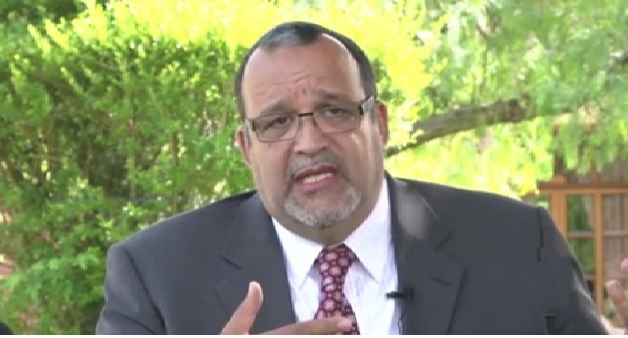
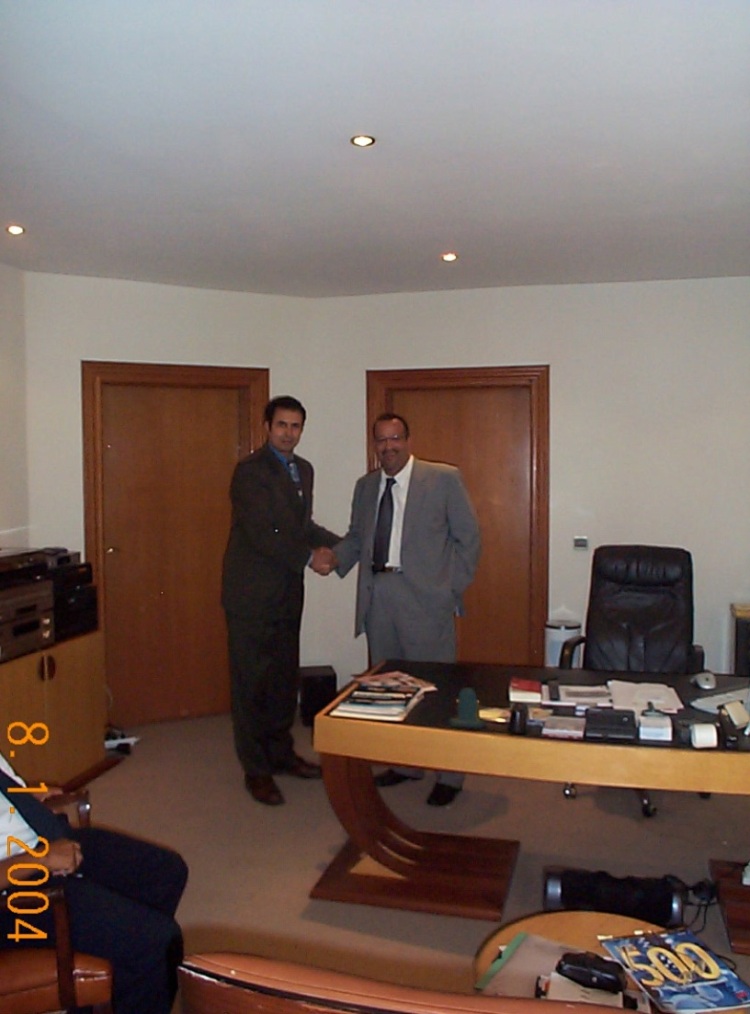
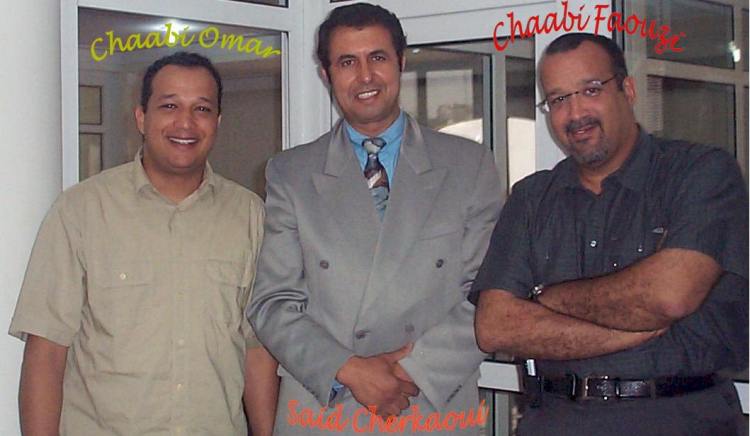
One example of Dr. Cherkaoui’s presentation on Nord Saharan Africa
Claremont Club & Spa, A Fairmont Hotel – 1999 – 2000
The African Growth and Opportunity Act (AGOA) is a trade agreement between the United States and over 30 sub-Saharan African countries that allows the countries to export products to the US without tariffs. The US Congress passed the legislation in May 2000, and it was extended to 2025 in 2015. The goal of AGOA is to improve economic relations between the US and Africa and to help the economies of sub-Saharan Africa
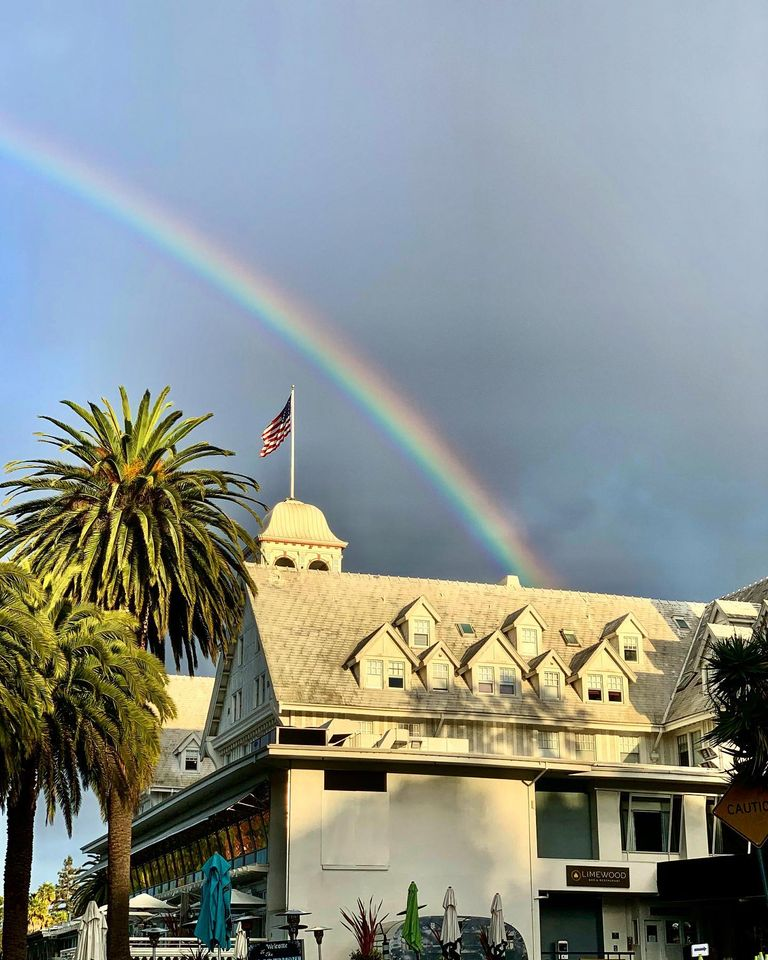
AGOA – AFRIQUE – USA – AFRICA and Said El Mansour Cherkaoui
International Conference on Africa, I initiated and organized with the EBCITD (East Bay Center for International Trade Development) Oakland, California.
So to combine the useful with the pleasant, I published all these photos with first that of Africa over my shoulders. This photo dates from 2001, the year I suggested and participated in the organization of the First International Conference on Africa held in Northern California at Berkeley. Another will follow later in San Francisco in 2007.
I completed this first photo with others such as the one where the former CEO of the African Development Bank (Dr. Babacar Ndiang) was holding my hand and I am surrounded by African-American executives, one during one of my presentations and others showing a partial view of the audience.
Conférence Internationale sur l’Afrique a Claremont Hotel, Berkeley, California, USA
Said El Mansour Cherkaoui is at Claremont Club & Spa, A Fairmont Hotel – April 4, 2016 · Berkeley
Since my early studies at Institut des Etudes Politiques of the Grenoble University, France, the development and integration of Africa were at the forefront of my studies and topics of my presentations in seminaries and essay papers. It was natural that I continue to work and increase awareness about Africa and its need to establish new kinds of relations with other countries other than the past metropolitan and colonialists.
Here below among other pictures, there is a photo taken in the company with the Regretted Dr. Babacar Ndiaye, former CEO of the African Development Bank Group who hold firmly my hand and is standing at my left side.
I extended the invitation to Dr. Boubacar N’diaye for his presence among us at this International Conference on Africa. He was delighted about my presentation and we also sat together and had lunch at the same table. Wonderful Man with full love for Africa and Africans and who initiated a series of important financial and operational measures: the African Businessmen Round Table, the creation of the African Bank for import-export (Afreximbank), and the setting up of special easy financing for the African private sector (investors and entrepreneurs) without the guarantee of their governments.

AFRIQUE – USA – AFRICA and Said El Mansour Cherkaoui
The World of Dr. Said El Mansour Cherkaoui
Conférence Internationale sur l’Afrique que j’avais initié et organisé avec le EBCITD (East Bay Center for International Trade Development) de Oakland, Californie
International Conference on Africa, I initiated and organized with the EBCITD (East Bay Center for International Trade Development) Oakland, California.
Alors pour joindre l’utile a l’agréable, j’ai publié toutes ces photos avec en premier celle de l’Afrique par dessus mes épaules. Cette photo date de 2001, l’année ou j’ai suggéré et participé a l’organisation de la Première Conférence Internationale sur l’Afrique tenue en Californie du Nord a Berkeley. Une autre suivra par la suite a San Francisco en 2007.
Je complète cette première photo avec d’autres telles que, celle ou l’ancien PDG de la Banque Africaine de Développement (Dr. Babacar Ndiang) me tenait la main et je suis entouré par des Africains-Américains exécutives, une durant une de mes présentations et d’autres montrant une vue partielle de l’assistance.
Rena Amran: Tu nous honores Said El Mansour

I initiated and developed a workplan on the organization of The International Conference on Africa took place in 2001. The first time in the history of the Bay Area of San Francisco and North California to have a conference of such magnitude and subject. that I submitted to Fazale Sharif the Director of the EBCITD which I was the initiator and for which I and participated directly in its organization. I contacted and invited Dr. Babacar Ndiaye and in the following photo, event / photo took place is during an International Conference on Africa I had organized in Oakland, California and of which Dr. Babacar Ndiaye, Rahimahu Allah was our Guest of Honor.
Here below are listed links which content present among others some illustrations of my activities in regard to the Integration of Africa with which I was directly involved, including the facilitation of the signing of the Free Trade Agreement between the United States and Morocco.
For many among us, time flies through horizons without leaving traces on recognition and gratitude on what we have achieved for the good for others especially in my case not be born in the United States but I remain up to now the maker of differences between cultures and the guardian of the memories I cherish and remember through my meetings and interactions with the real treasuries of the Humanity.
The second link below presents “The ADB honors its former president, the late Babacar Ndiaye: https://www.afdb.org/en/news-and-events/the-afdb-pays-tribute-to-late-president-babacar-ndiaye-17363
The Conference Room was packed with U.S. and Foreign officials and Executives as well as faculties and Researchers on Africa and the Place where all these interactions took place was the fabulous and monumental Claremont Hotel in Berkeley, Northern California.


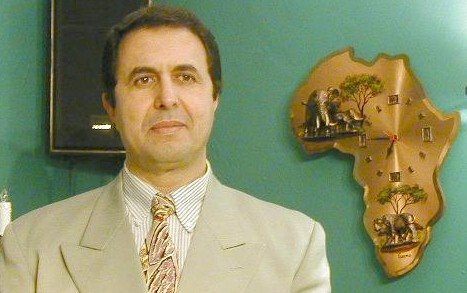

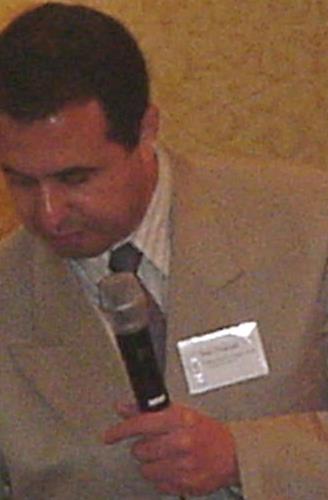
Said El Mansour Cherkaoui Pioneered Work on Africa with the organization of visits of Business Delegation from Algeria, Senegal, Cameroon, Ghana, Nigeria, and Egypt
December 6, 1994 – AFRICA – EGYPT
– Dr. Said El Mansour Cherkaoui as Co-Chair and Laurent Roffe as the Chair of the International Business Committee Organized the First Visit of the Federation of the Egyptian Chambers of Commerce to California – Business Meeting at the Golden Gate University where Dr. Said Cherkaoui has taught in various Schools and Departments for 16 years as Adjunct Associate Professor from 1987 to 2003
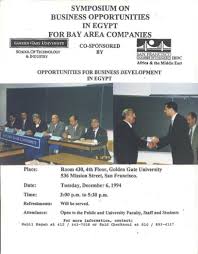
Dr. Cherkaoui Co-Chair of International Business Committees at the San Francisco Chamber of Commerce
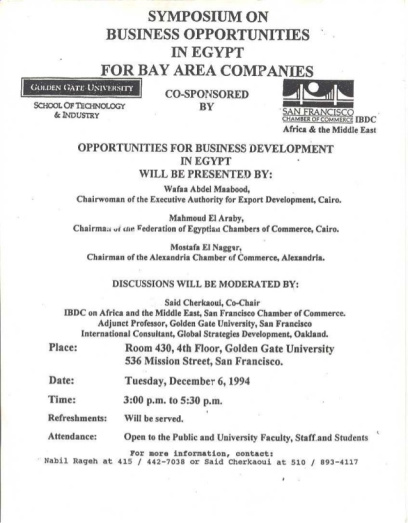
Laurent Roffee and Dr. Cherkaoui facilitated the signing of the Trade Treaty between San Francisco Chamber of Commerce and the Federation of the Egyptian Chambers of Commerce
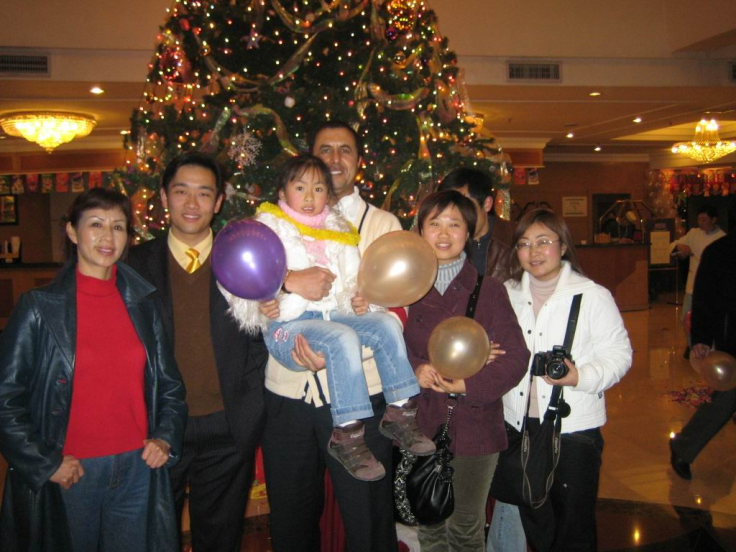
欢迎 慷慨和善良
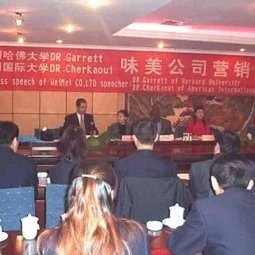
Direct Relation with Chinese People from 1994 to Now
October 8. 1994 to October 29, 1994 – Dr. Said Cherkaoui and Laurent Roffe Developed Business and Trade Connections Between California and China and provided training programs to the first Chinese Research and Development Delegation
Dr. Said El Mansour Cherkaoui invited by the central and provincial governments of China
新年快乐 – Xīnnián Kuàilè
★ Dr. Said El Mansour Cherkaoui facilitated the meeting of High level Executive, Managers and Scientists in China and their American Peers – Contributed in the Trade Development of China and California and Southern Europe ★
★ Dr. Cherkaoui facilitated Business Deals and Contacts Between High-level Executives / Managers in Export – Import and Scientists from China with their Californian Peers ★
★ Dr. Said El Mansour Cherkaoui Invited by the Central and Provincial Governments of China ★

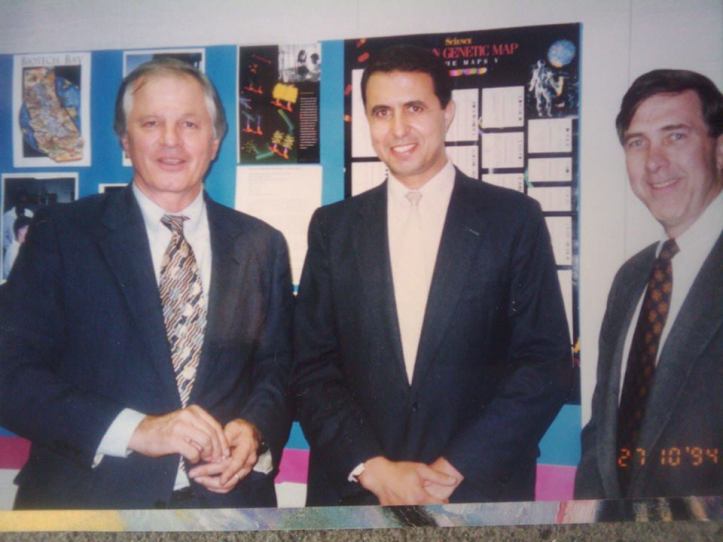
USA – Testimonials Recognizing the Business Achievements and Competences of Dr. Said El Mansour Cherkaoui
France and USA – Letters of Recommendations on Research and Academic Teaching by Dr. Said El Mansour Cherkaoui
Dr. Said El Mansour Cherkaoui Teaching US Pilots at the Travis Air Force Base
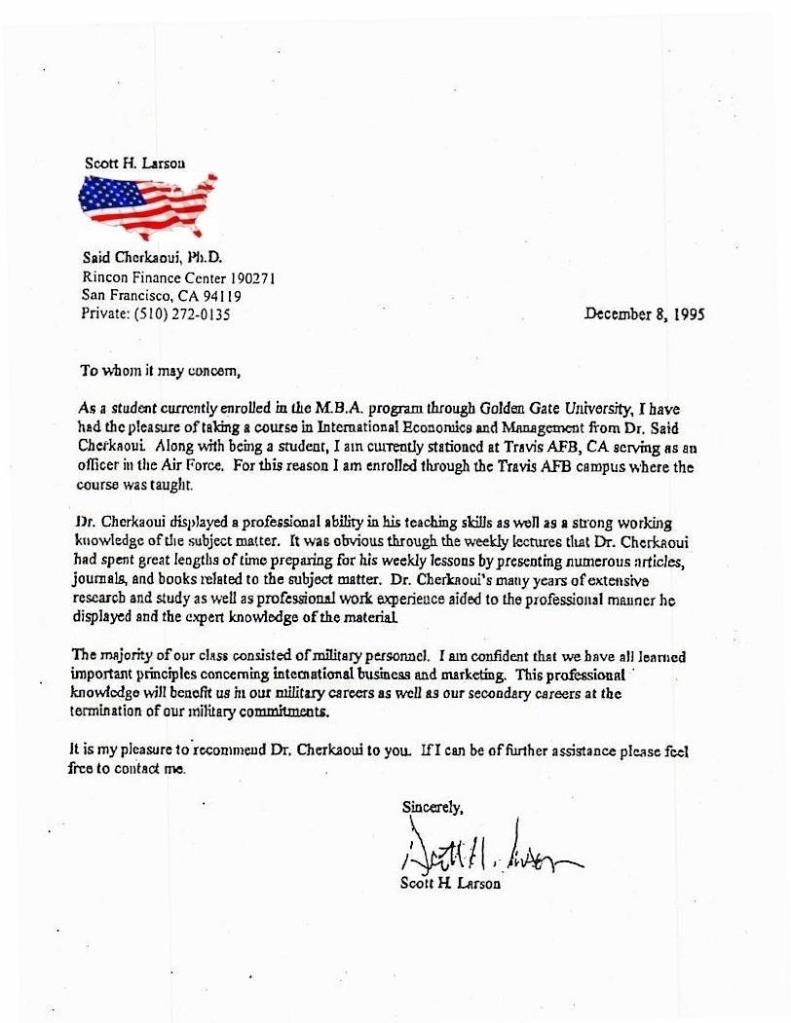
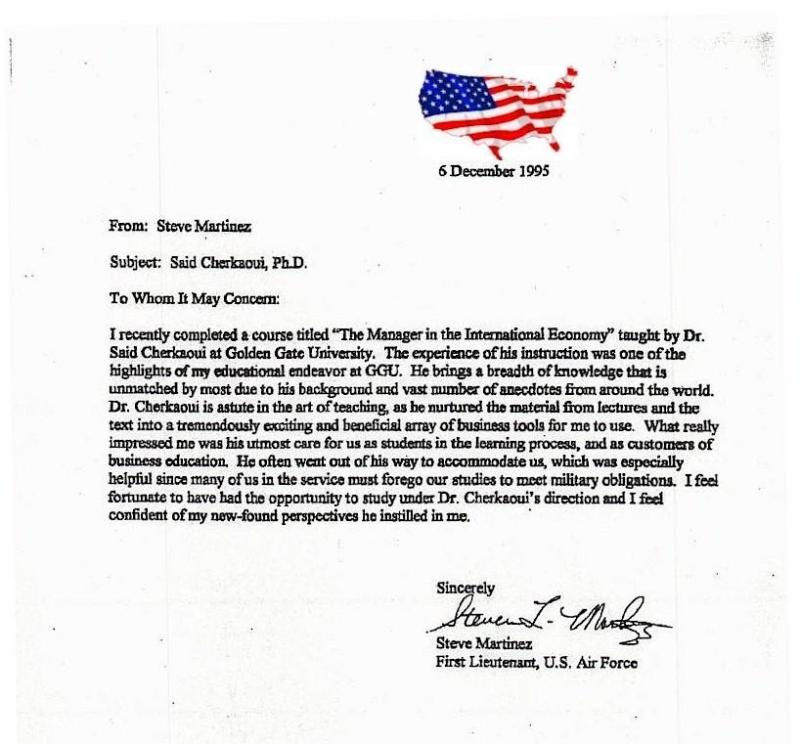
Recommendation by Dr. Wesley Young, Director, Services for International Students and Scholars at University of California, Davis –
I was the Director of Graduate Business Programs at Dominican University of San Rafael, when Dr. Cherkaoui was teaching in our international MBA program. Said brought not only a solid academic background to the classroom, but also a wealth of business experience both in the US and in Asia and Latin America. He is passionate about his students and his work outside the classroom. This made him one of the most effective faculty that we had teaching at the time.
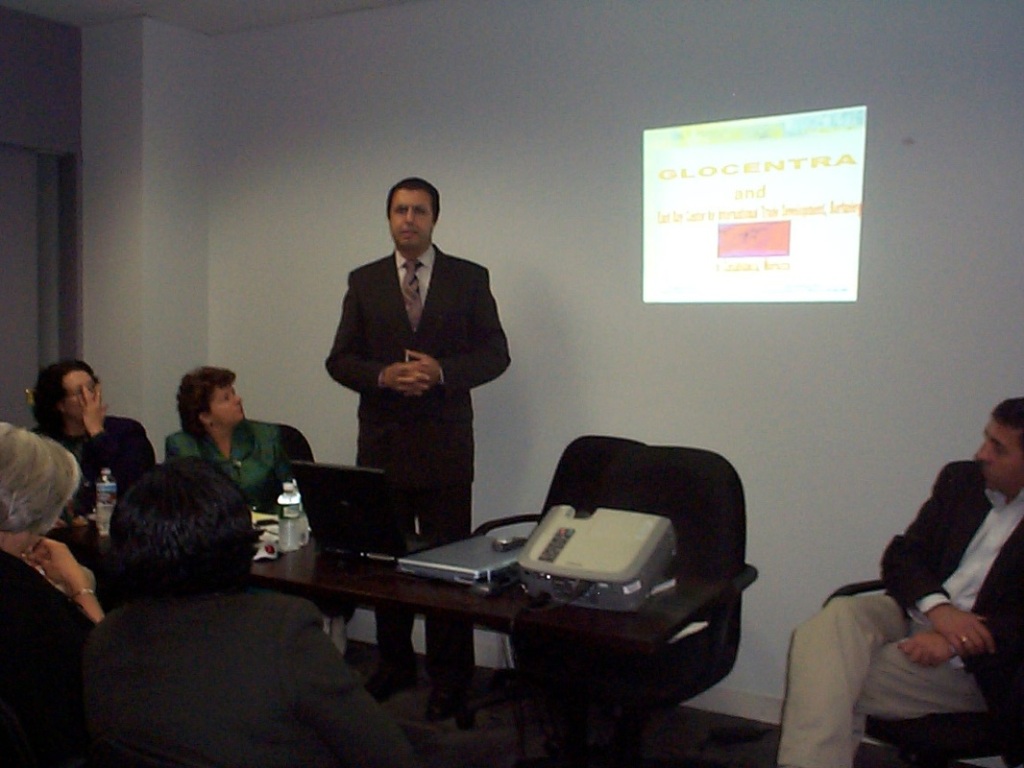
Recommendation by Ersan Ertuzun, Corporate Communications Supervisor at WTC Istanbul
https://www.wtca.org/world-trade-center-istanbul
Dr. Said Cherkaoui is an exceptional figure in international business development. His broad range of expertise covers all ranges of economic development, with such accomplishments in international trade consulting, trade missions, small business development, just to name a few..
Dr. Cherkaoui has successfully conducted numerous trade missions, represented U.S. companies at trade shows, and helped companies develop their businesses overseas. His academic works have a significant contribution to the global business community, executives in world trade, and entrepreneurs.
I worked with Dr. Cherkaoui at the East Bay Center for International Trade Development. His expertise and services included and not limited to:
Always a role model and source of influence, Dr. Cherkaoui possesses extensive hands-on experience in a wide range of industries, as well as academic achievements, in the field of international trade and economic development.
Selected Publications and Research Programs by Said El Mansour Cherkaoui: Europe, China, North America – Mexico
| said_cherkaoui_globalogisticsinternatrade.pdf |
http://glocentra.weebly.com/uploads/1/2/0/2/12025433/said_cherkaoui_globalogisticsinternatrade.pdf


Dr. Cherkaoui publication of his research on the development of technology in China – London 2001




American Institute of Management at Oakland – January 5, 2016 · Oakland ·
Recommendations for Dr. Said El Mansour Cherkaoui:
Recommendation by Ersan Ertuzun
Corporate Communications Supervisor at World Trade Center at Istanbul, Türkiye
https://www.wtca.org/world-trade-center-istanbul
Dr. Said El Mansour Cherkaoui as Consultant at the East Bay Center for International Trade Development, Oakland – Berkeley, California, USA
Dr. Said Cherkaoui is an exceptional figure in international business development. His broad range of expertise covers all ranges of economic development, with such accomplishments in international trade consulting, trade missions, small business development, just to name a few..
Dr. Cherkaoui has succesfully conducted numerous trade missions, represented U.S. companies at trade shows, and helped companies develop their businesses overseas. His academic works have a significant contribution to the global business community, executives in world trade, and entrepreneurs.
I worked with Dr. Cherkaoui at the East Bay Center for International Trade Development. His expertise and services included and not limited to;
– Consulting services to small businesses and the Center’s clients regarding their products and market entry in Latin America and Southeast Asia as well as in the Mediterranean regions,
– Creation and delivery of workforce training programs such as the Workshop on International Trade, International Market and International Business Development,
– Development of International Business Plans for foreign delegations,
– Operating business strategy that he wrote and submitted to the Director Fazale Sharif on the operation of the Center for International Trade Development,
– Negotiation with the Chinese Delegation from Guizhou,
– Negotiation with Dr. James Garrett, the Dean of Instruction at Vista Community College for the accreditation and the Delivery of the Training Program for the Chinese Delegation from Guizhou.
Always a role model and source of influence, Dr. Cherkaoui possesses extensive hands-on experience in a wide range of industries, as well as academic achievements, in the field of international trade and economic development.
March 9, 2014, Ersan worked indirectly for Said El Mansour at East Bay Center for International Trade U.S. Economic Development Administration
Recommendation by Dr. Wesley Young
Former Director, Services for International Students and Scholars at University of California, Davis
Dr. Said El Mansour Cherkaoui as Visiting Professor and Adjunct Associate Professor at the Dominican University of California, San Rafael, California, USA
I was the Director of Graduate Business Programs at Dominican University of San Rafael, when Dr. Cherkaoui was teaching in our international MBA program. Said brought not only a solid academic background to the classroom, but also a wealth of business experience both in the US and in Asia and Latin America. He is passionate about his students and his work outside the classroom. This made him one of the most effective faculty that we had teaching at the time.
May 23, 2014, Wesley worked directly with Said El Mansour at Dominican University of California
To access these recommendations, you can find them at the end of the text presented by this link:

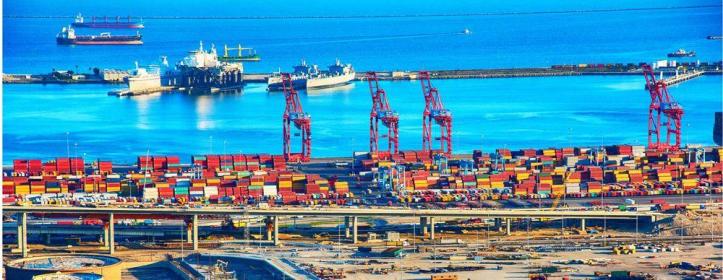
Since 1993, Dr. Cherkaoui conducted training on Market and Technology to Strengthen California Trade Relationship with markets, compagnies and countries that are located in Europe, Africa, Middle East and Asia
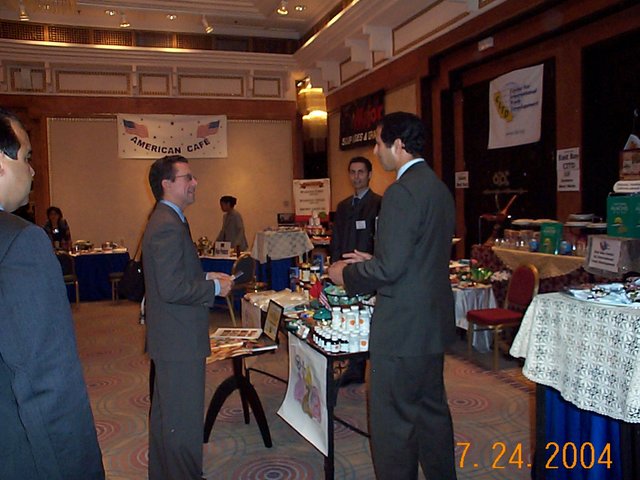
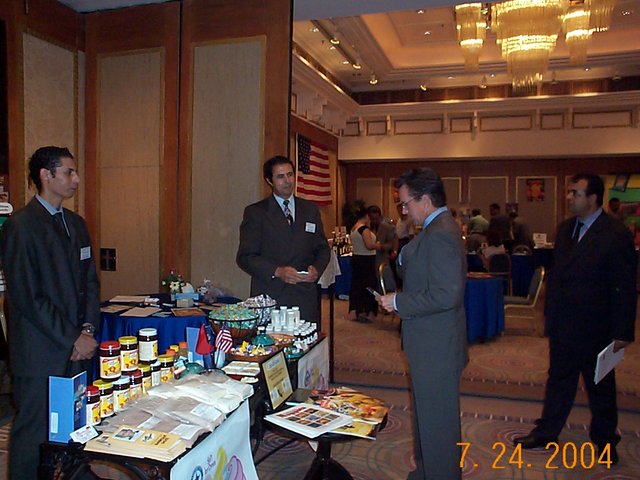
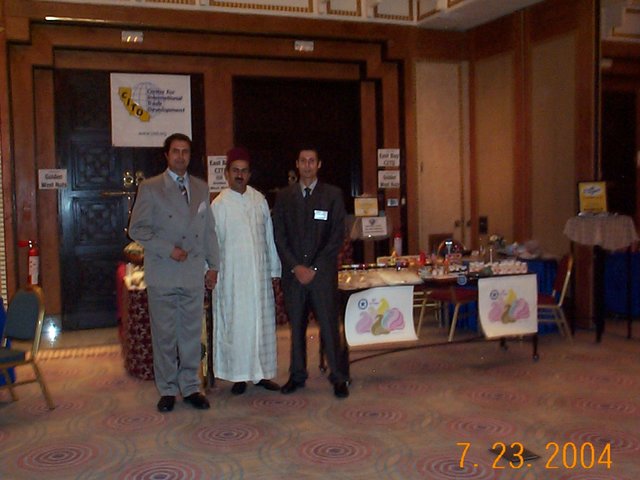
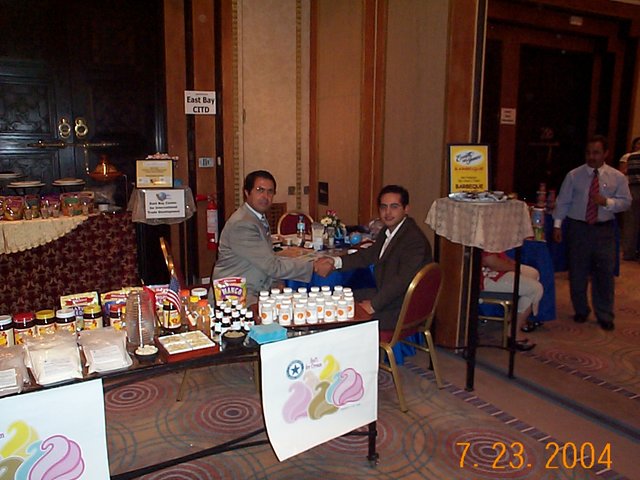
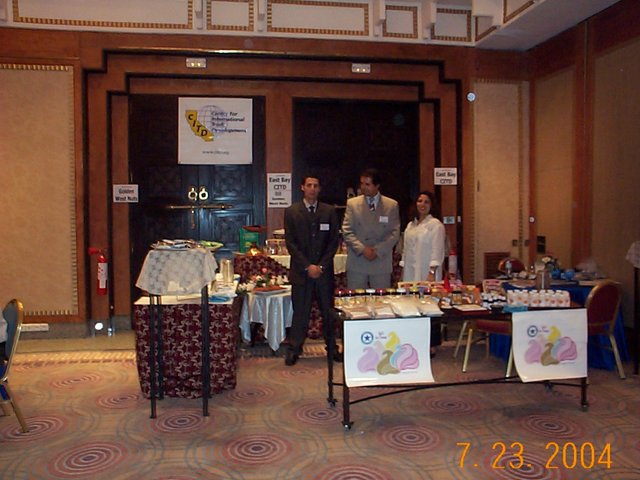
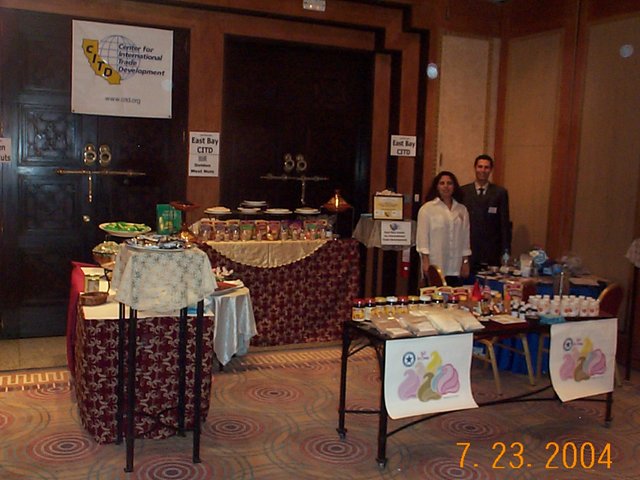
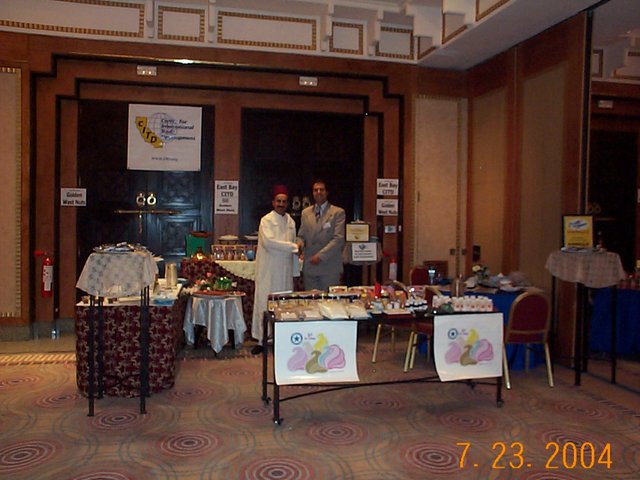
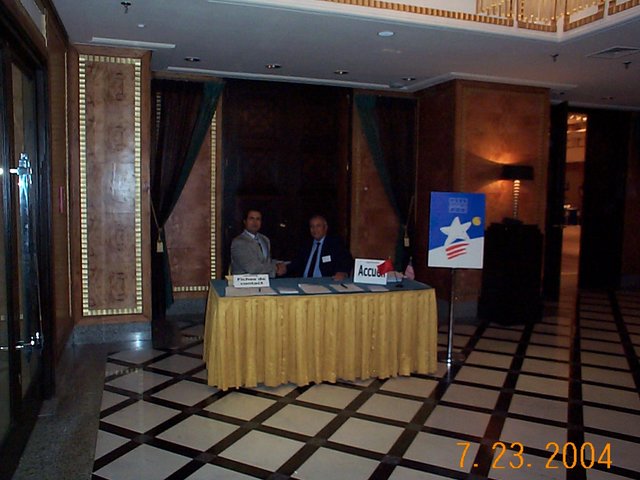
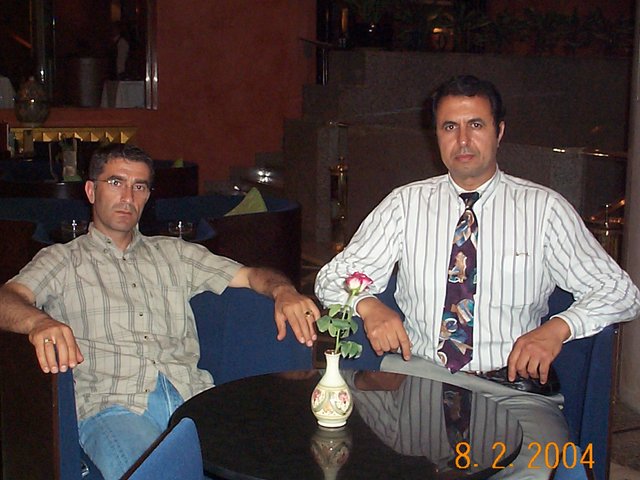
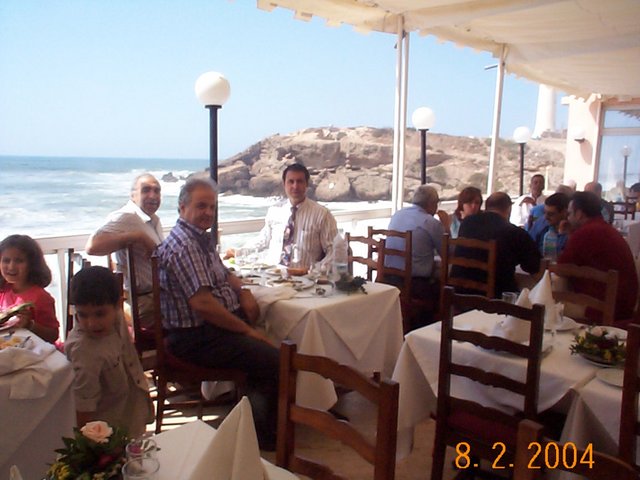
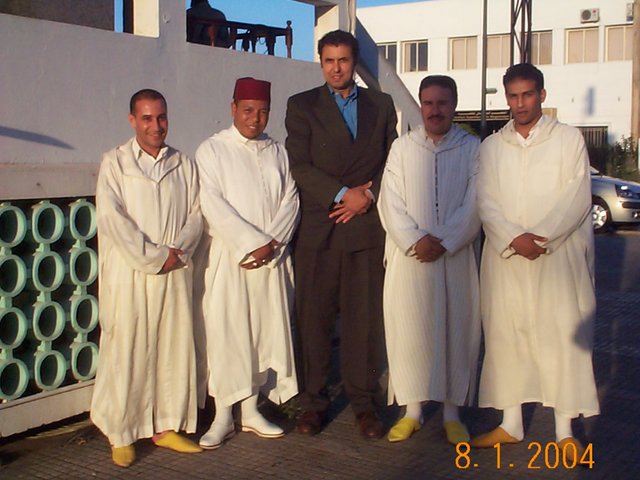
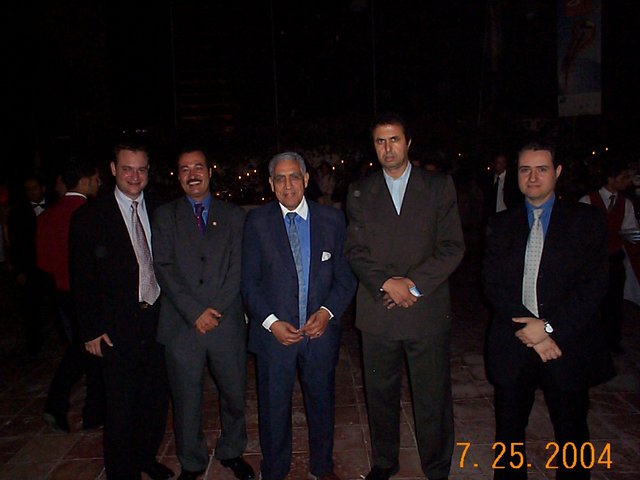
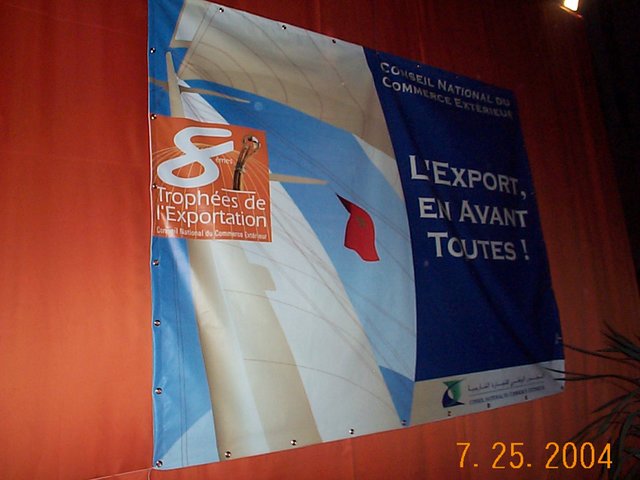
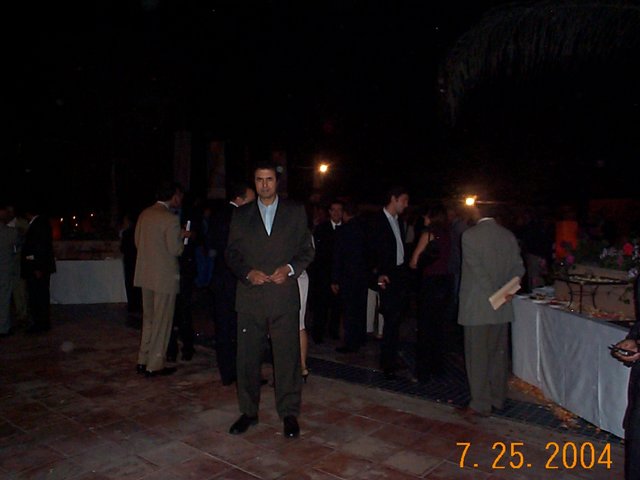
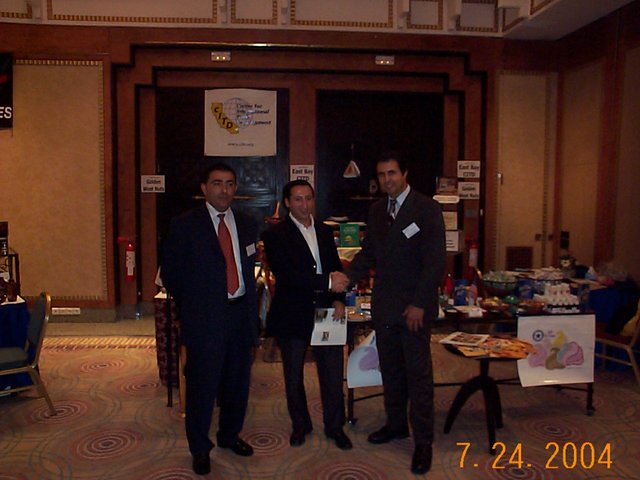
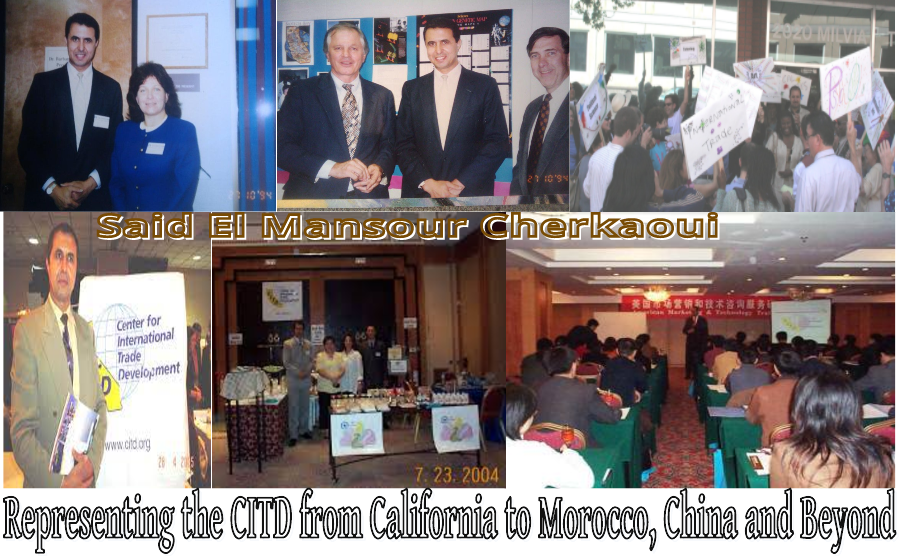
In 1993-1994, within the Vista Community College at Milvia street we launched the First CITD in North California and the Third one in the History of the Californian CITD
On the same day with Dr. Barbara Beno and with State Senator Tom Bates at an Expo I organized with the Center for International Trade at Vista Community College, Berkeley

October 23 1994, Dr. Said El Mansour Cherkaoui and Dr. Barbara Beno Presidente of Vista Community College in front of her office and where the first office of the Center of International Trade Development was located

Tom Bates (California Assembly and Mayor of Berkeley), Said El Mansour Cherkaoui and Senior Official of the Port of Oakland 27/10/1994
Said El Mansour Cherkaoui Websites and Social Media
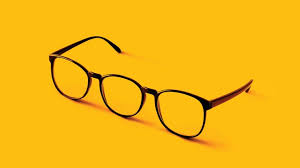
Said El Mansour Cherkaoui, Ph.D. ★Professional Affiliations and Sites with Publications by Said El Mansour Cherkaoui – April 23, 2022 – 16,485 views ★ … Continue reading Said El Mansour Cherkaoui Websites and Social Media
Said El Mansour Cherkaoui and the Center for International Trade Development
Working and covering the International and Regional Business Communities of Berkeley – Oakland – Emeryville – Albany – Alameda – Fremont – San Leandro and San Francisco in Northern California and beyond

Tradeshow by the Bay Area Chambers of Commerce organized by the Berkeley, Oakland, Emeryville, Alameda Hispanic Chamber of Commerce, Fremont, San Jose and San Francisco Chambers of Commerce,
Organizing the International Trade Student Association for and by the Students at Vista Community College with Sponsoship of the East Bay Center for International Trade Developement
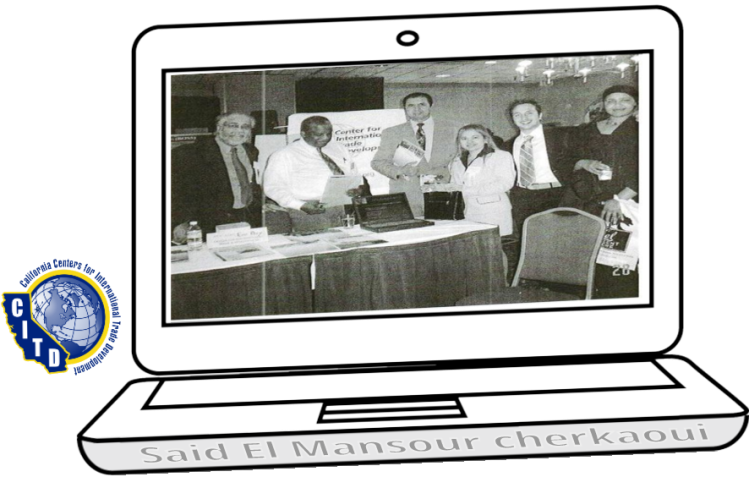
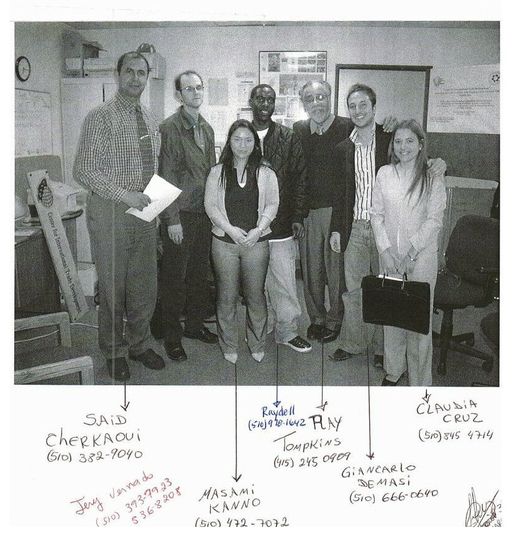
Publications and Seminars on Middle East by Said El Mansour Cherkaoui
Stanford University
Said El Mansour Cherkaoui: 1991, The structural causes of the Gulf crisis and the quest for a peaceful solution in the Middle East, Comunità internazionale, 46(1/2) 1991 : 141-163
Said El Mansour Cherkaoui Research and Publications on Latin America: Argentina, Brazil, Chile, Mexico and Peru
Publication on the Economic Development of Brazil at the Centre National de la Recherche Scientifique de Paris par Said El Mansour Cherkaoui:
La relation ambivalente entre l’Etat fédéral et les grands groupes d’intérêts privés au Brésil dans la première moitié du XXe siècle, Auteur: CHERKAOUI, S. El Mansour
Centre National de la Recherche Scientifique, Paris, France Source. 1985, ref : 4 p Type de document Report Langue French Classification Francis 533 Amérique latine / 533-30 Histoire
Discipline Latin america Provenance Inist-CNRS Base de données FRANCIS Identifiant INIST 12001549
Thèse de doctorat de CHERKAOUI Said El Mansour
Réf ANRT : 13965
Lille : ANRT, 1993.- 2 mf. ; 403 p., tabl., graph., ill., photogr..- bibliogr. 16 p.
Thèse doctorat : Paris, Univ. Paris 3, IHEAL : 1992
Economie ; Histoire économique ; Capitalisme ; Libre-échangisme ; Développement inégal ; Relations Nord-Sud ; Siècle 19 ; Siècle 20 : première moitié ; 1830-1930 ; Amérique latine ; Argentine ; Brésil ; Chili ; Pérou
N° : MF-92/PA03/0099
As Business Consultant at the East Bay Small Business Development Center and the Center for International Trade Development (including the East Bay Center for International Trade Development) between 1993 to 1998 and 2001 to 2007, I have worked with the Hispanic communities and their business executives and individual entrepreneurs as well as the Hispanic Chamber of Commerce of Alameda County and Sacramento.
Dr. Said El Mansour Cherkaoui, representante del Centro para el Desarrollo del Comercio Internacional (CITD) y Marruecos en una sesión ejecutiva de trabajo y una recepción organizada por las Cámaras Hispanas de Comercio de California, Condado de Alameda, Estados Unidos de America (https://www.cahcc.com/default.aspx#.YlFtssjMLrc).
g of the Berkeley City College and the transfer of the EBCITD at this new location.


★★★★★
★ Any Question or Need for Consulting Service, Contact us ★
★★★★★
Dr. Said El Mansour Cherkaoui are licensed under a Creative Commons Attribution-NonCommercial-NoDerivatives 4.0 International License.chroniquecherkaoui – TRI CONSULTING KYOT0 – TRI CK USA CALIFORNIA Dr. Said El Mansour Cherkaoui are licensed under a Creative Commons Attribution-NonCommercial- NoDerivatives 4.0 International License.





